handbook J-1 scholar
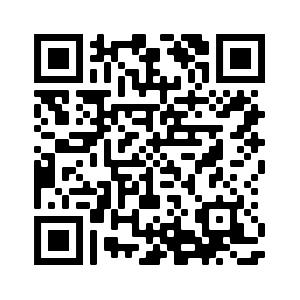
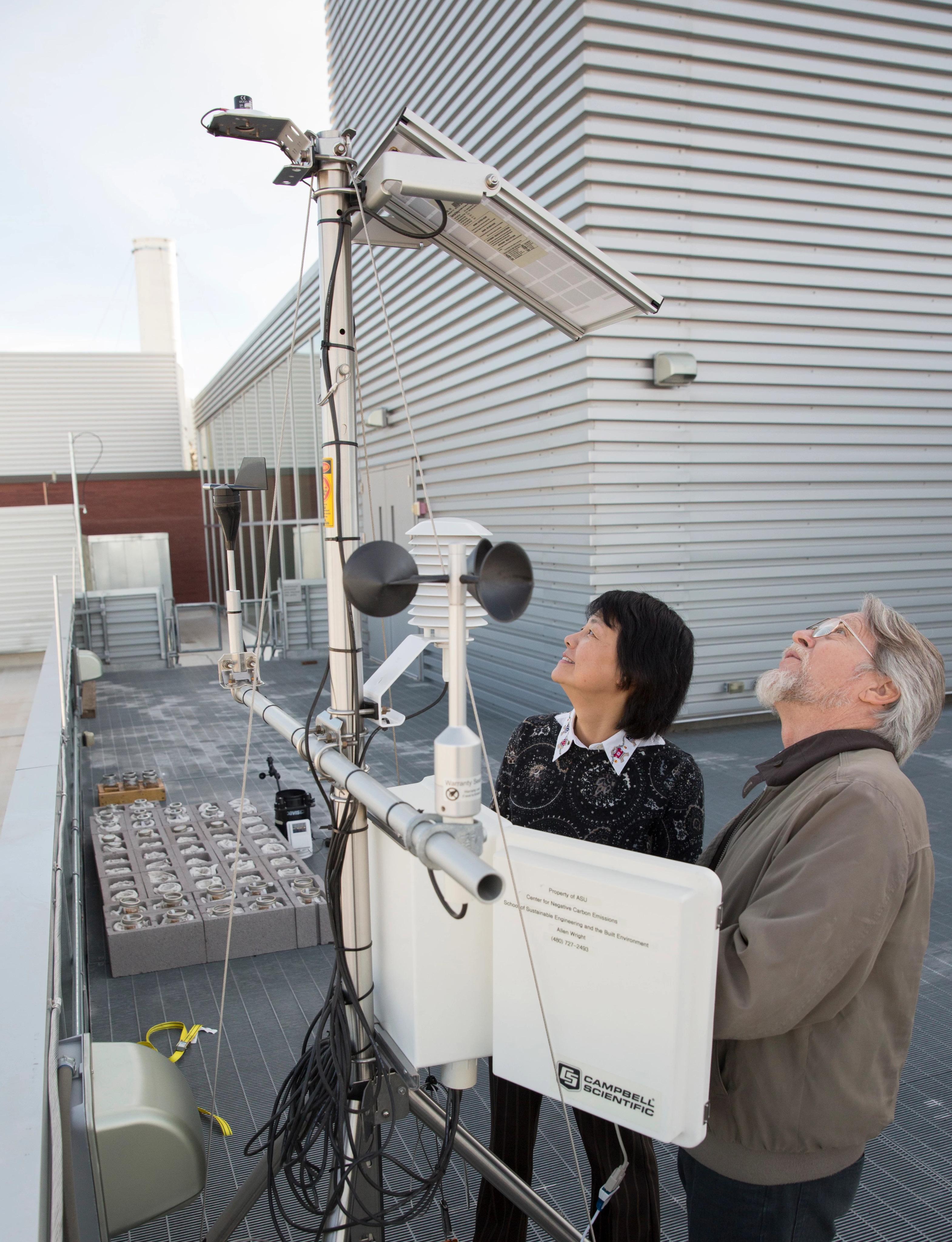
Scan with your smartphone camera to view the digital edition.
Table of contents
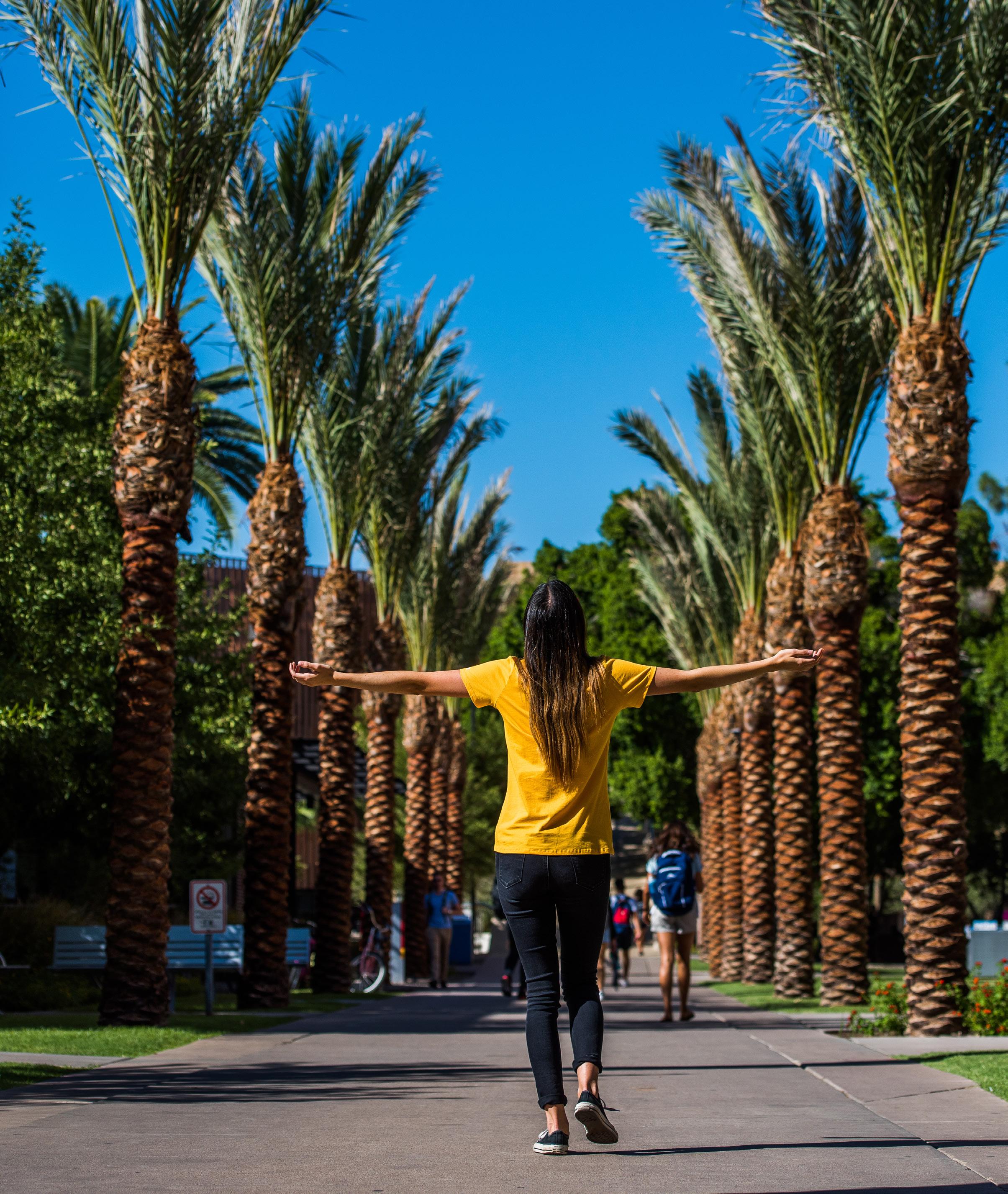
i
Welcome 2-4 SEVIS fee 5 Applying for a J-1 or J-2 visa 6 Early and delayed arrival 7 Entering the United States 8 SEVIS check-in 9 ASU Sun Card 10 Housing 11-13 Healthcare 14-16 Health and safety 17 Transportation 18-19 Banking 20-21 Cell phones 22 Social Security number 23 Identification and driver’s license 24 English 25 Child care and education 26-27 J-2 employment 28 About ASU campuses 29-31 Campus resources 32 Weather 33 Visiting Arizona 34 ISSC events 35 BridgeUSA welcome brochure 36-40 Map and building location 41
International Students and Scholars Center

The ASU International Students and Scholars Center is a globally-minded team providing comprehensive support, advisement and advocacy for ASU international students, scholars and faculty, while maintaining the highest standard of integrity and immigration compliance to ensure that ASU continues to be a top choice for the international academic community.

issc.asu.edu
InternationalScholars@asu.edu
Our office is located on the Tempe campus. We are open Monday through Friday 8 am to 5 pm except on university holidays. University Holidays can be found on the Academic Calander. students.asu.edu/academic-calendar
Schedule an appointment bit.ly/3u48ITN
(480) 727-7125
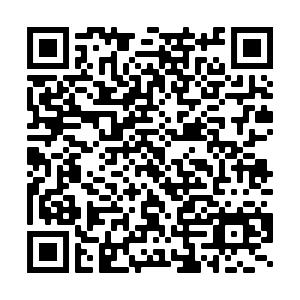
250 E Lemon St Room 172
Tempe, AZ 85281
1
A message from our Assistant Vice President
Holly Singh
Greetings new scholar Sun Devils!
I want to personally welcome you to the Arizona State University global community on behalf of the International Students & Scholars Center (ISSC).
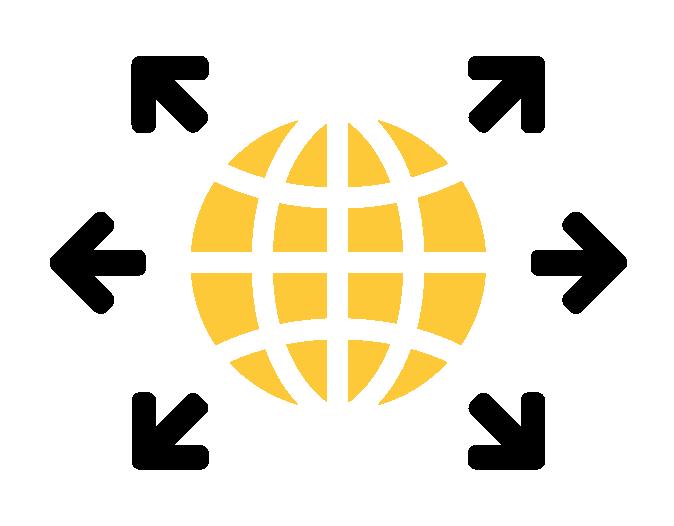
As a top public university chosen by international students and scholars, we serve international studentscholars across the ASU’s four Phoenix metropolitan campuses and other locations across the U.S. ISSC facilitates the success of over 13,000 international students and serves more than 700 international scholars and faculty members that come to ASU, engaging our research facilities, and expanding international partnerships.
The ISSC staff provides comprehensive support, advisement, and advocacy for ASU international students, scholars, and faculty while maintaining the highest standard of integrity and immigration compliance to ensure that ASU continues to be a top choice for the international academic community.
We welcome and support citizens from around the world, who are then inspired to create and collaborate, further catalyze the community around common values, and synthesize new opportunities to transform global citizenship.
Through your time spent at ASU, consider what being a global citizen means to you. I welcome you to visit our center, stop by and say hello or have a conversation with me. I would also like to hear your story, your new achievements, your challenges, or anything else that inspires you. We want you to always be a part of our global community and stay in touch with us. When you complete your journey here and move on to your next chapter, we hope you take a piece of ASU Sun Devil spirit in your heart, that carries with you no matter where you go. We also hope the friendships and relationships you build will carry on throughout your life journey.
ISSC is here for you as we are always open to your ideas, suggestions or concerns about our services. Please let us know how we’re doing and how we can further support you to make sure your journey is successful.
Sincerely,
Holly Singh (Pronouns: he/him, they/them)
 Assistant Vice President,
Center
Assistant Vice President,
Center
2
Arizona State University | Academic Enterprise Enrollment
International
holly.singh@asu.edu | Ph: 480.727-8314
ASU charter
ASU is a comprehensive public research university, measured not by whom it excludes, but by whom it includes and how they succeed; advancing research and discovery of public value; and assuming fundamental responsibility for the economic, social, cultural and overall health of the communities it serves.”

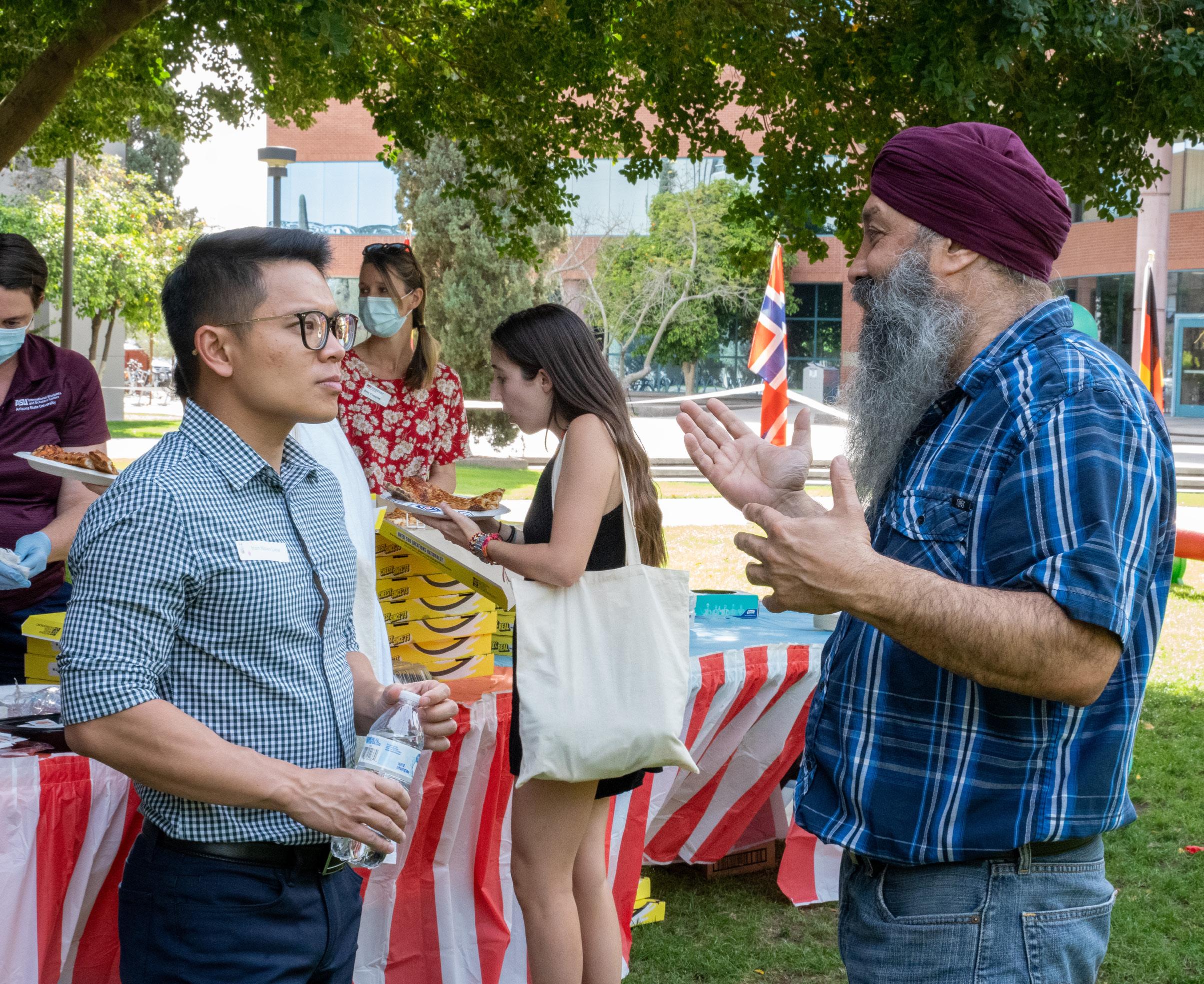
3
Welcome to Arizona State University
We are glad that you chose Arizona State University (ASU) for your J-1 Exchange Visitor Program. The International Student and Scholar Center (ISSC), is here to help you with immigration planning and related matters during your stay.
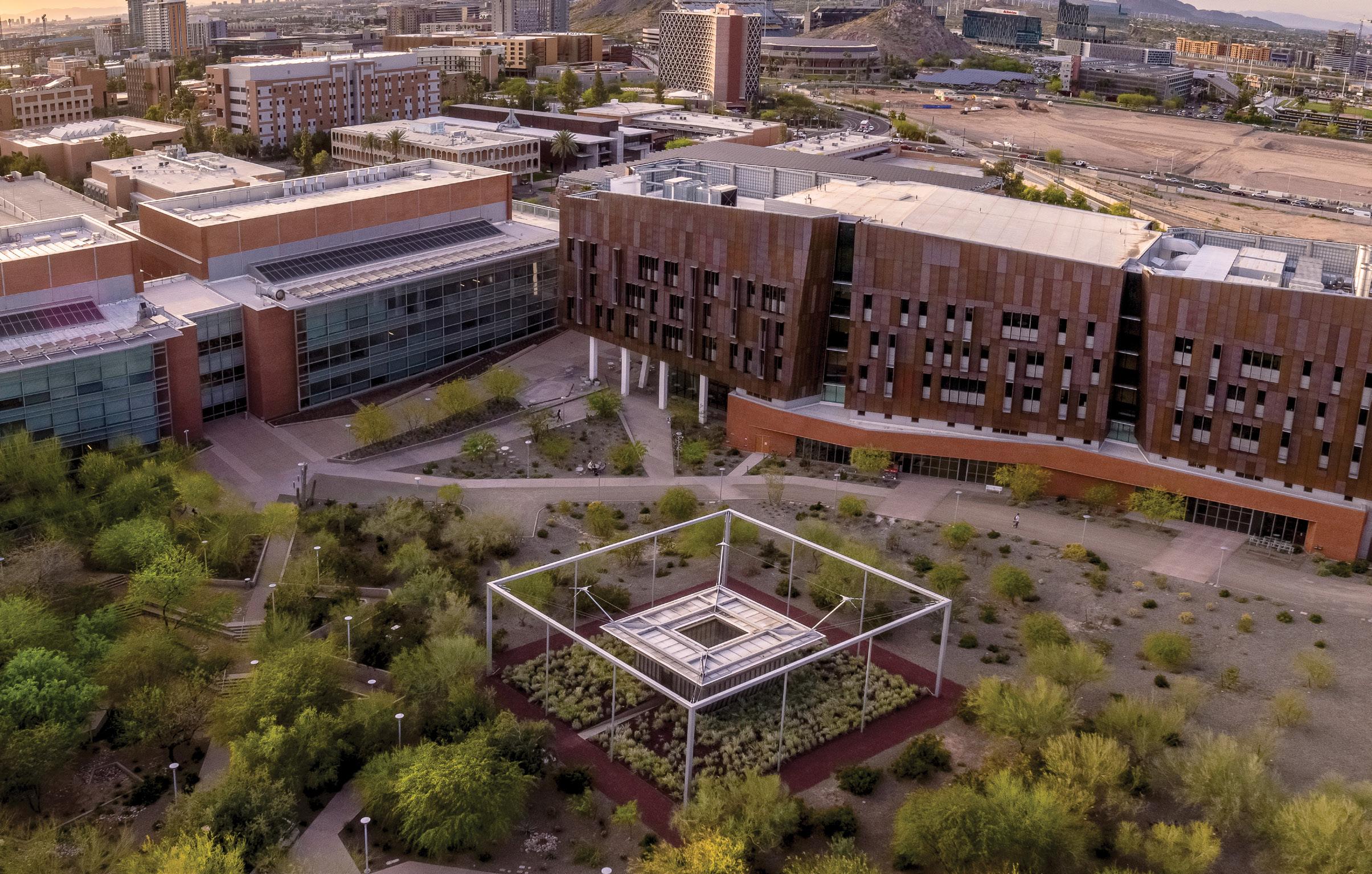
This J-1 Scholar Handbook contains essential information about immigration regulations, programs and services for new international scholars. Whether you are coming to ASU from your home country or from another U.S. university, please read this guide carefully.
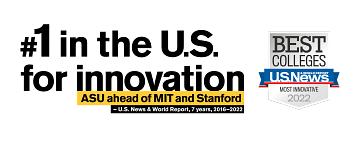
4
SEVIS fee
The U.S. Department of Homeland Security (DHS) requires the collection of a one-time SEVIS fee of $220 from certain J-1 Exchange Visitor students and scholars. This fee is collected to fund the operation of the Student and Exchange Visitor Program, which has oversight over SEVIS - Student and Exchange Visitor Information System.
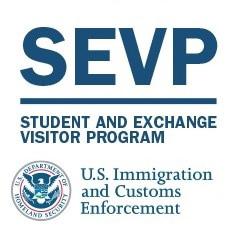
• This is a one-time fee. You will not be required to pay the fee again if your Exchange Program is extended.
• J-2 dependents are not required to pay the SEVIS fee.
You must pay the fee directly to DHS by completing Form I-901 electronically or by mail
Procedures for payment of the SEVIS fee:
1. Online submission: Submit form I-901 to DHS using a credit card (Visa, MasterCard, or American Express accepted): fmjfee.com/i901fee/index.jsp. Follow the instructions on the website and print the confirmation page.
2. Western Union: Exchange visitors in any country where Western Union offers it’s Quick PayTM service can pay the I-901 SEVIS fee locally using the Western Union Quick PayTM service. Western Union collects the SEVIS I-901 fee, in local currency, along with the needed Form I-901 data and electronically transmits the payment and data to SEVP (Student and Exchange Visitor Program). The properly completed Western Union receipt serves as immediate proof-of-payment for a visa interview at a U.S. consulate and for admission at a U.S. port of entry.
Instructions for this payment option are on the SEVP website at ice.gov/sevis/i901 Take a printed copy of the instructions and the sample of the completed Western Union form, also on the website, to the Western Union Agent to ensure that the payment is processed correctly.
3. Mail-in submission: Submit form I-901 to the DHS address on form along with the $220 SEVIS fee paid by check, money order, or foreign draft drawn on a financial institution in the U.S. and payable in U.S. currency. Allow two (2) weeks for delivery and two (2) weeks for return of the receipt. For an additional $30 fee, DHS will return the receipt in 3-5 days.
Third-party payment: Another person can make the payment for an exchange visitor by one of the three methods above.
Receipts: DHS will mail an official paper receipt (I-797) acknowledging every payment regardless of payment method. Express delivery service for the I-797 receipt may be requested at an additional cost. Anyone who submits an individual fee electronically will be able to print out an electronic receipt immediately at the time of payment for use in advance of the delivery of the official paper receipt. Although SEVIS fee payments will be recorded by DHS in your SEVIS record and will eventually be used by government officials to document the SEVIS fee payment, it is recommended that a SEVIS fee receipt be used to request any status-related benefit (i.e., application for visa, admission at U.S. port-of-entry, application to change status).
5
Applying for a J-1 or J-2 VISA
A valid J-1 visa is required for entry to the United States on the Exchange Visitor Program. For information on processing times and procedures, visit the U.S. Department of State at: travel.state.gov/ content/travel/en/us-visas.html
Immediate family members (spouse and unmarried children under the age of 21) who will accompany you to the U.S. may apply for J-2 visas using the DS2019 forms provided to you. If your family will join you later, a DS-2019 form will be issued by the ISSC upon request.
Note:
A personal interview is required, so you will need to schedule your appointment as soon as possible. The ISSC advises against making non-refundable travel plans prior to receiving your visa.
To apply for a J-1 visa, submit the following documents to the U.S. Embassy or Consulate:
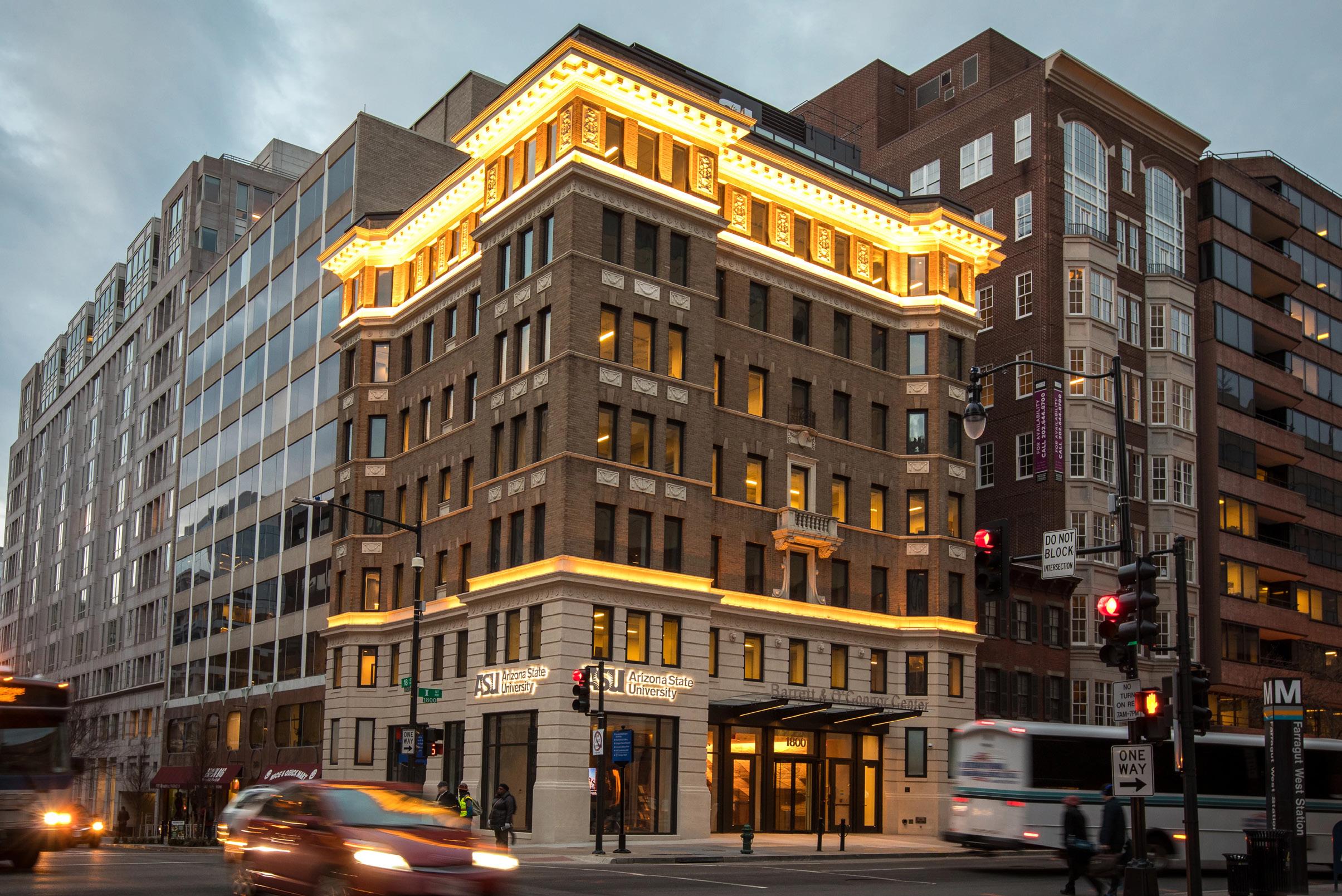
▶ Signed DS-2019(s) – A separate DS-2019 form is required for each visa applicant. Each J visa applicant should sign their own DS-2019, with the exception of children under age 14 (the J-1 parent should sign in this instance). The DS2019(s) will be returned to you to present at the U.S. port of entry.
▶ Receipt showing payment of the $220 SEVIS fee (J-1 only)
▶ Payment of the $185 visa application fee and appropriate visa application forms (see: usembassy.gov) for each visa applicant
▶ Passport(s) valid for at least 6 months into the future for each visa applicant
▶ Proof of financial support - You must be able to verify the total funds indicated on the DS2019 with a personal bank statement and/or a sponsor’s official statement of support. If you are receiving payment from ASU, your invitation/ offer letter should indicate this amount.
▶ Two U.S. passport-size photos (check with the U.S. Consulate) for each visa applicant
▶ J-1 Invitation letter from the sponsoring department at Arizona State University
▶ Evidence of J-2 relationship to the J-1 applicant (e.g. marriage or birth certificate)
6
Early and delayed arrival
Early arrival
United States Department of Homeland Security regulations state that holders of J1 – J2 nonimmigrant visas will not be admitted to the U.S. more than thirty (30) days prior to the program start date nor will they be admitted more than 30 days after the official program start date as recorded in the Student and Exchange Visitor Information System (SEVIS). Please consider these dates carefully when making your travel plans to the United States.
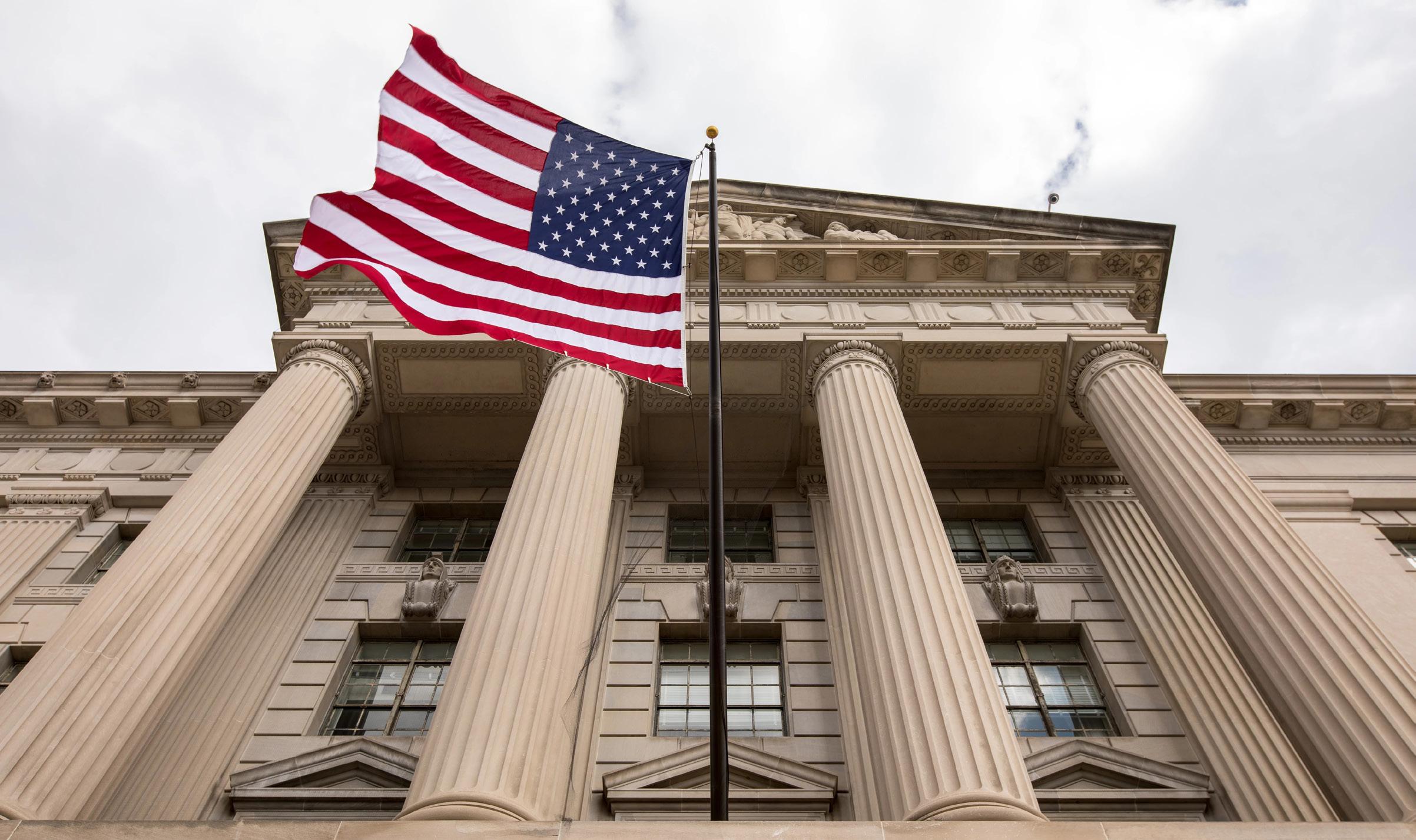
Delayed arrival
You must inform your sponsoring department contact person if you will arrive more than 15 days after your program start date as shown on your Form DS-2019. If you are unable to reach your department contact, please send an email to: InternationalScholars@asu.edu and copy your departmental supervisor. If email is not available, please contact your department by any means available and ask them to inform the ISSC.
For example: If your program start date as shown on your Form DS-2019 is October 15, but you cannot arrive within 15 days after that date (by October 30), then you must notify your sponsor and the ISSC of your new anticipated arrival date. Your official start date will then be amended in SEVIS to more accurately reflect your anticipated arrival date.
While it is preferable for the start dates in SEVIS and on your DS-2019 to match, it is not required for your admission to the United States. The officer at the US Port of Entry will access SEVIS to verify that you are arriving within the permitted window of time, that is, within 30 days prior to and 30 days after the date recorded in SEVIS as your official program start date.
7
Entering the United States
Present the following documents to the U.S. Customs and Border Protection (CBP) Officer at the U.S. port of entry:
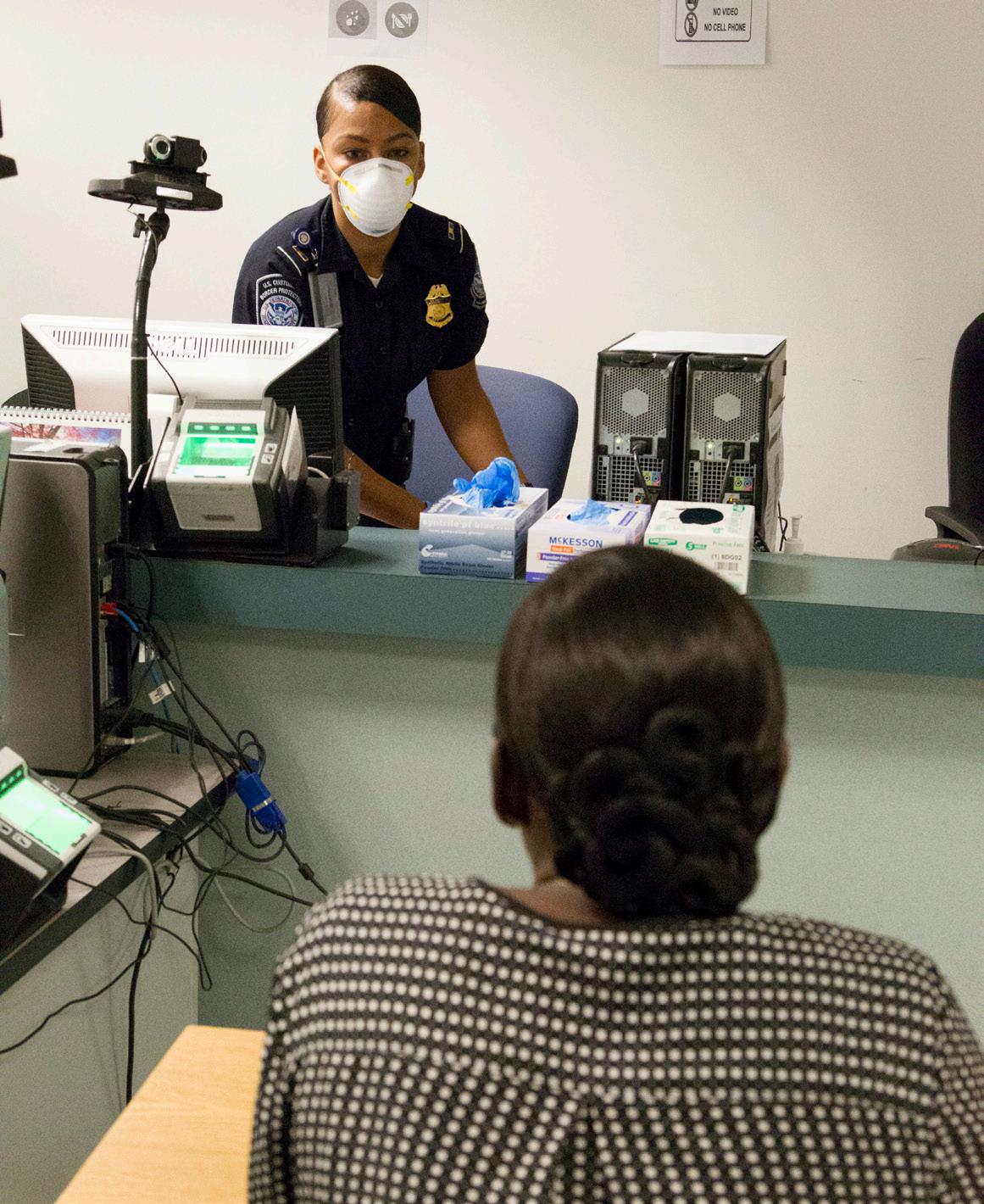
▶ Original Passport(s) containing a valid J-1 visa (or J-2 visas for accompanying family members)
▶ Original signed DS-2019(s) for you and any accompanying family members
▶ Recommended: Proof of financial support (same as the document presented at the U.S. Embassy or Consulate) and invitation letter from the sponsoring department at ASU
The officer should return the following:
▶ Passport(s) with entry stamp: Please check that the entry stamp has the notation “J-1 D/S” or “J-2 D/S” (D/S stands for “duration of status”)
▶ If you notice a discrepancy, please be sure to address it with the CBP officer immediately as it may be difficult to correct later
▶ Stamped DS-2019s for you and any accompanying family members
▶ Any of the documents that you provided
Next steps upon arrival
Inform your inviting department that you have arrived safely. Attend the mandatory SEVIS Check-In/Orientation as soon as possible after your arrival.
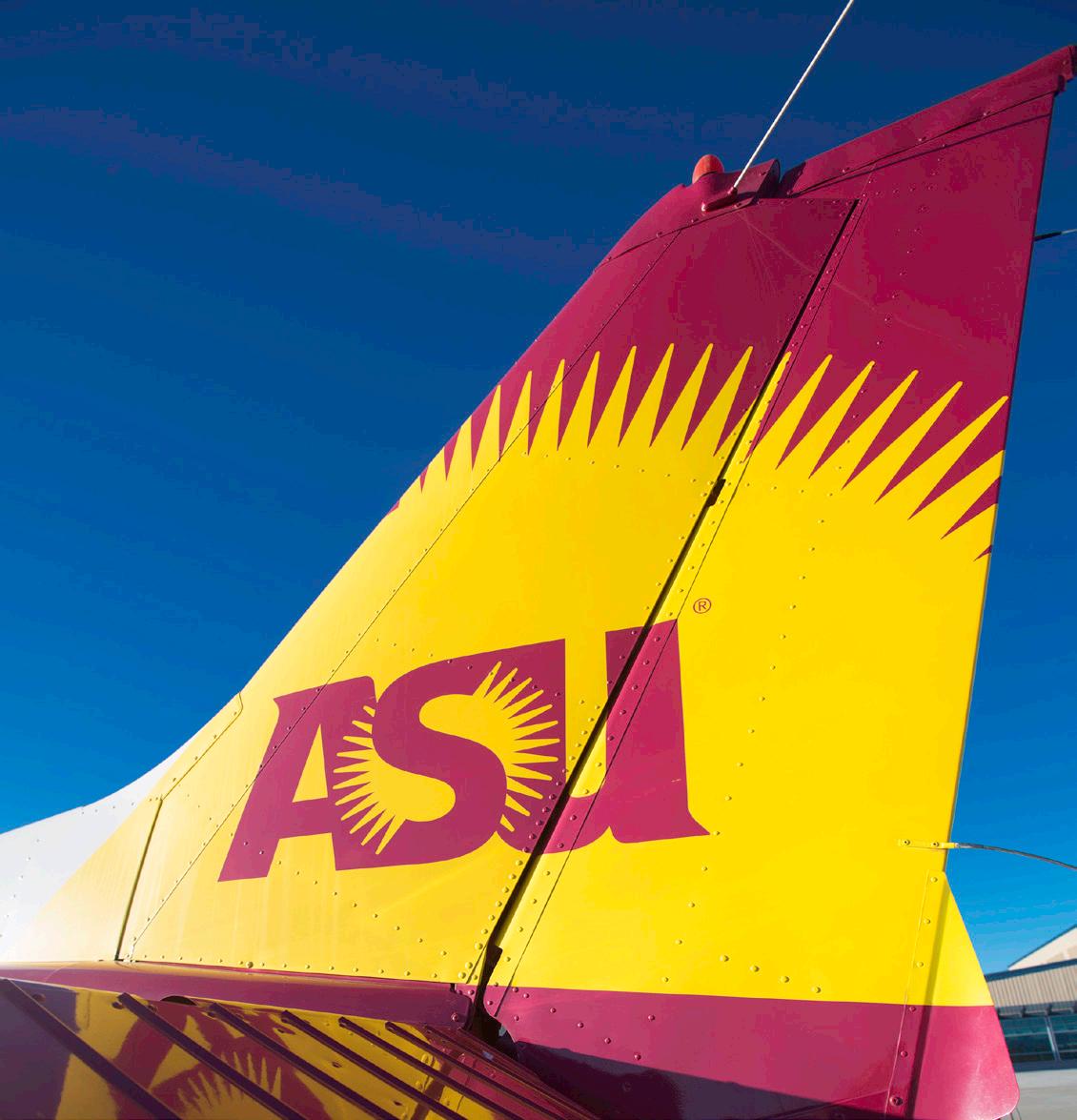
I-94 records
Under the current system, your I-94 entry record will be available to you by accessing the following website online:
i94.cbp.dhs.gov/I94/#/home
Occasionally, a paper I-94 is issued at the U.S. Port of Entry.
Canadian nationals
Canadian nationals are not required to obtain a visa stamp from the U.S. Embassy or Consulate. However, they must present the enclosed DS-2019, SEVIS fee receipt, and a Canadian passport at the U.S. port of entry in order to be admitted in J-1 status for D/S (duration of status). If you are a Canadian Landed Immigrant, please check with the nearest U.S. Consulate about whether or not you require a J-1 visa stamp, as requirements vary depending on country of citizenship.
8
Mandatory SEVIS check-in and orientation
Overview
The U.S. Department of State requires the ISSC, as your program sponsor, to provide you with a SEVIS Check-In/Orientation. After you attend, your arrival will be validated in the Student and Exchange Visitor Information System (SEVIS) database. This validation notifies the Department of Homeland Security that you have arrived and begun your J-1 exchange visitor program and updates your SEVIS record to “ACTIVE” status. Failure to attend orientation and have your SEVIS record validated may result in future immigration complications.
Dates and times
Please schedule the SEVIS Check-In/ Orientation as soon as possible after your arrival. You can schedule a phone/Zoom J-1 Scholar appointment through our appointment system. Please select the J-1 Scholar General Advising category. bit.ly/3u48ITN
What to submit
Please upload your immigration documents to the check-in eForm at: myissc.asu.edu/istart/ controllers/client/ClientEngine.cfm?. Please be sure you have activated your ASU email address to have access. You should have received an email from ASU to set up your ASURITE and email account. You will need to submit a copy of each document listed below.
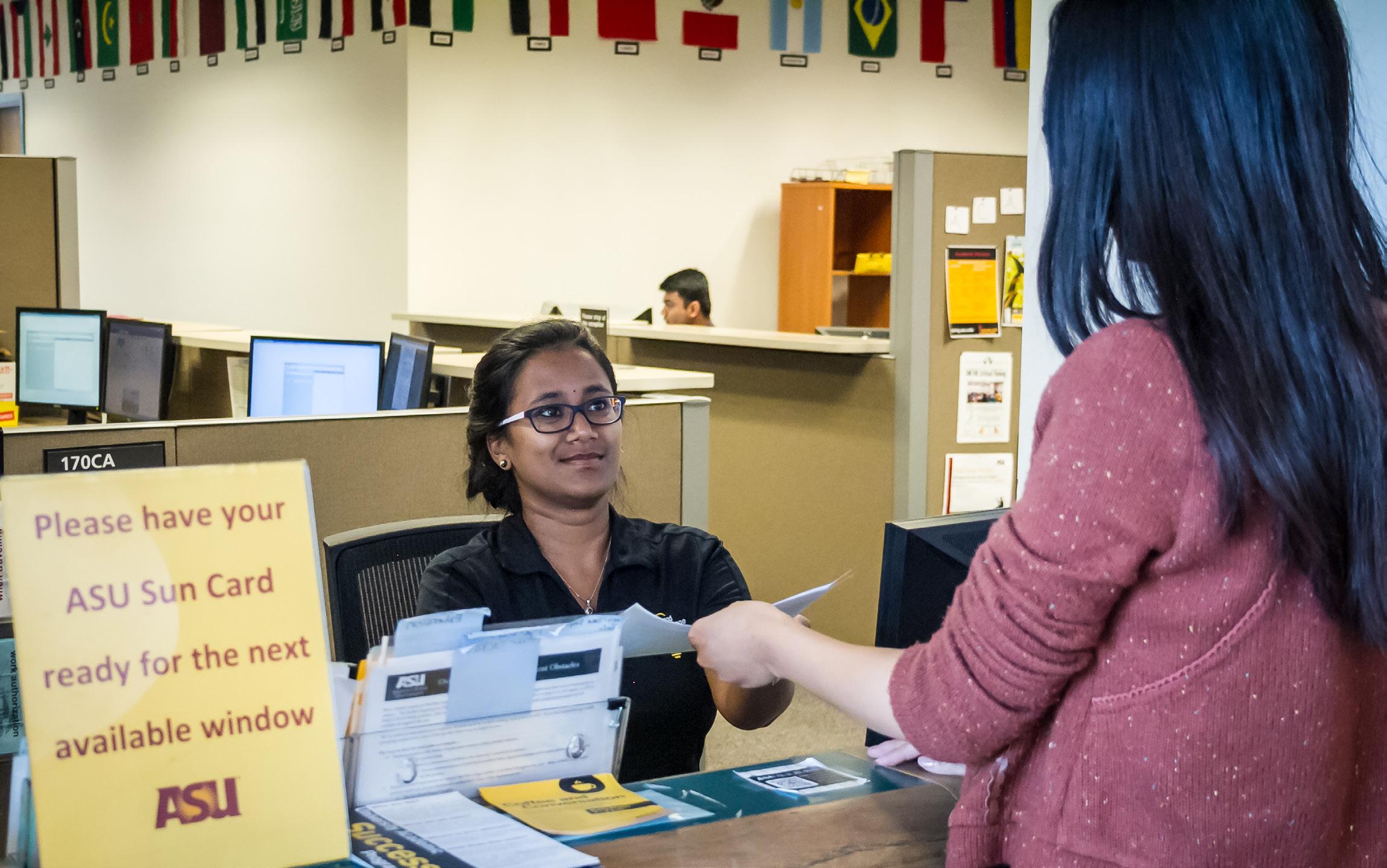
• Passport(s) – Must show visa and entry stamps
• I-94 i94.cbp.dhs.gov/I94/#/home
• DS-2019(s)
• Proof of healthinsurance – Must show that it meets U.S. Department of State requirements
•If you will receive health insurance from ASU, you must enroll in the Triple Choice Plan
Please also include your local U.S. address, local phone number & email address.
9
ASU Sun Card
ASU requires all students, employees and qualifying ASU affiliates to obtain an official ASU ID Card (Sun Card). Students and employees may choose between the Pitchfork ID Card, complete with Sun Devil Checking exclusively from MidFirst Bank, or the basic Sun Card to use as their official university ID card. Meal plans and Maroon and Gold Dollars administered by Sun Devil Dining are also available through the ASU ID Card: sundevildining.asu.edu/
480-727-3463
Steps to get your ASU ID Card:
▶ Upload your photo to the ASU card services site for approval. Once your photo is approved, select a delivery method:
• Have your basic employee Sun Card mailed to you
• Pick up your employee basic Sun Card at Sun Devil Card Services Office office
• To learn about getting a Pitchfork ID card. This is an ASU Sun Card and a Midfirst debit card all in one. For more information visit one of Midfirst Bank’s
cfo.asu.
educardservices
ASU offers free headshots through the Enterprise and Marketing Hub on the Tempe campus. They also have a great guide for creating your own headshots on their website.
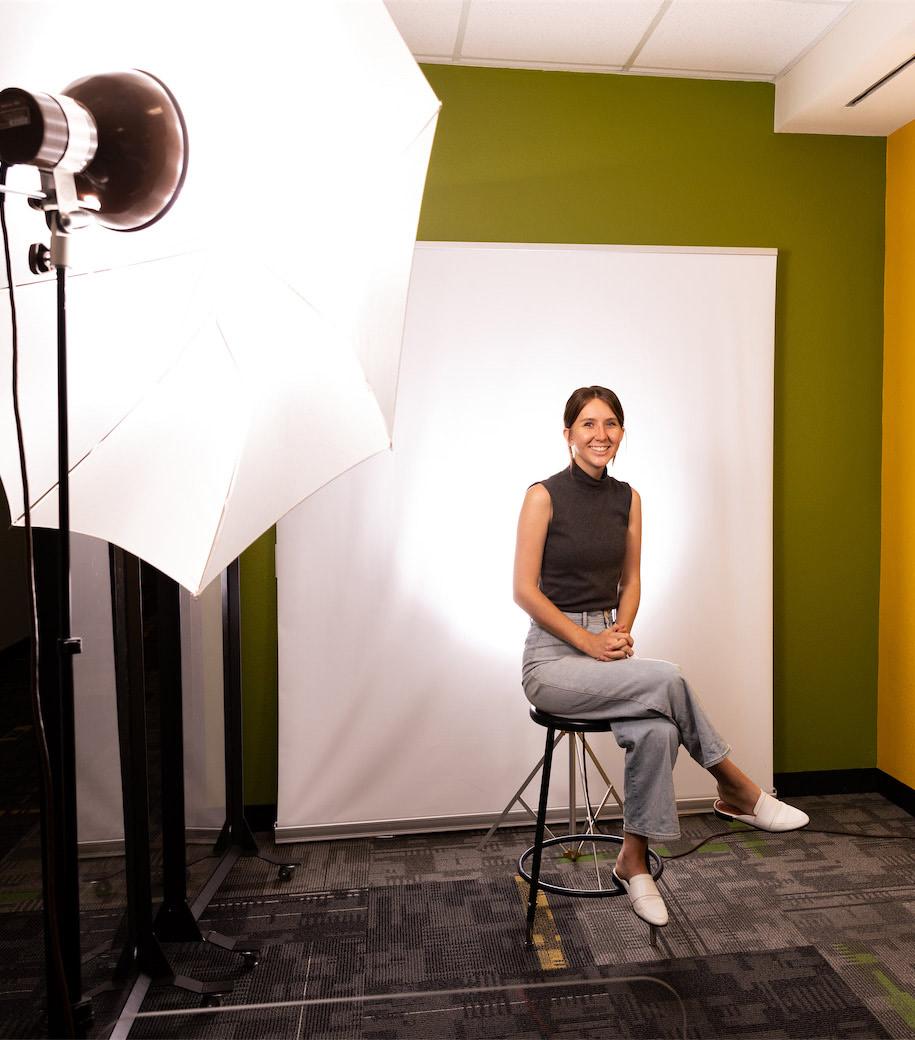
brandguide.asu.edu/requests/services/portrait-headshot
If you need to replace your Pitchfork ID Card or basic Sun Card, a $25 fee will apply. View rules and regulations for obtaining a replacement card: cfo.asu.edu/cardservices.
For questions about Sun Cards please contact the Sun Devil Card Office: sundevilcardinfo@asu.edu
480-965-2273
10
Tips for looking for off-campus housing

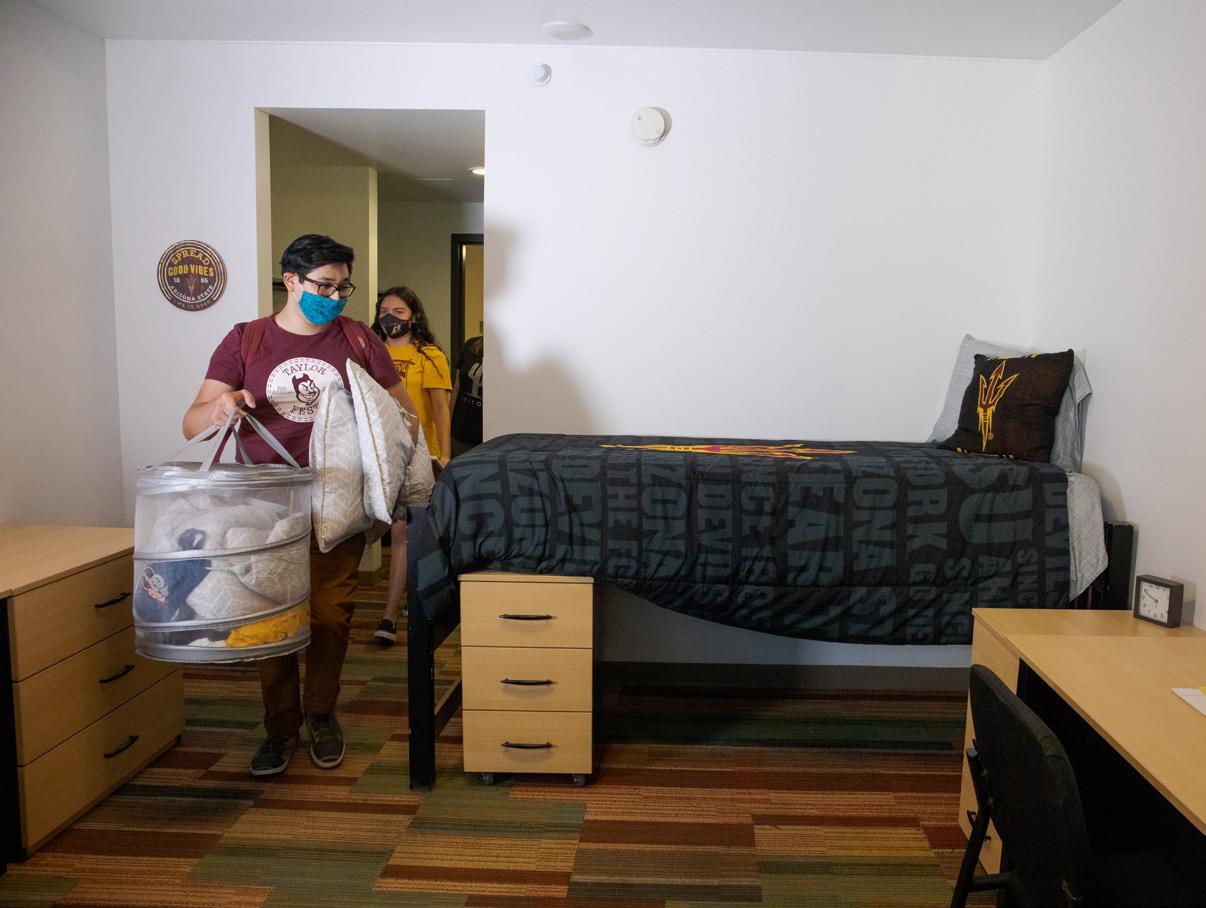
Use online portals like Zillow, Apartments. com, or Craigslist, to look for apartments
• Use search filters to narrow down options according to your needs
• Once you have found some options, do additional research such as looking for grocery stores and checking the safety rating of the areas
Hire a real estate broker who specializes in rental properties (not home sales)
• Look for licensed and bonded brokers to help you in your search
• Look for brokers who have helped others rent property in the areas you are interested in
Begin your search 2 months before your move
• The first week of the month is the best time to search
Consider a roommate
• Help share expenses
• ASU roommate board is a good resource to find others who are looking for a roommate: offcampushousing.asu.edu/roommates
• If you decide to get a roommate, make sure to have a roommate agreement that explicitly states who pays which bill or how much of each bill each person pays
Be weary of scams
• Places like Craigslist and Facebook Marketplace are full of scams, so be careful
• Never pay a deposit to an individual person to view a property
• Better to rent a property in a known place where others have rented before (or are currently renting if there’s more than one space available) than to an obscure or private landlord since you will be giving them payment information
• Do not pay or accept money from someone without vetting them first
Subleasing
• Subleasing is the re-renting of property by an existing tenant
• Subleases are usully shorter
• Consider this if you know you will be at ASU for a short term
If you have a car, make sure you look at parking options at the complex as some may charge for parking.
11
Housing in Arizona
Lease agreements
Apartments will require a lease agreement in order to live in their complex. Please read carefully before signing a lease agreement because if you break any terms in the agreement, it can cost you money and/ or result in your removal from your apartment. All the blank spaces on the contract should be filled in before you sign. The landlord is required by law to give you a copy of your lease.
Breaking a lease
You cannot “break” a lease agreement in the middle of a contract without being responsible for the payment of rent until the end of the
lease. There are exceptions to this rule. Under month-tomonth rental agreements, notice must be given 30 days before. A 30-day written notice may be necessary even when your lease ends on a specific date. Notices should always be given in writing. A “lease break” fee (mentioned in some rental agreements) may or may not be enforceable.
Ending a lease
At the end of your lease, you have the right to be present when the landlord completes a move-out inspection. The landlord is supposed to return your security deposit within 14 business days.
Security deposit
Apartment complexes generally require a security deposit for you to lease an apartment. This deposit is some additional money that you will give them when making the lease agreement to ensure that you do not damage the apartment or any other rented property and to pay for professional cleaning. You should get most of it back when you move out as long as no damage has been done. If you do damage the apartment and do not fix it before moving out, then you will forfeit some or all of your security deposit.
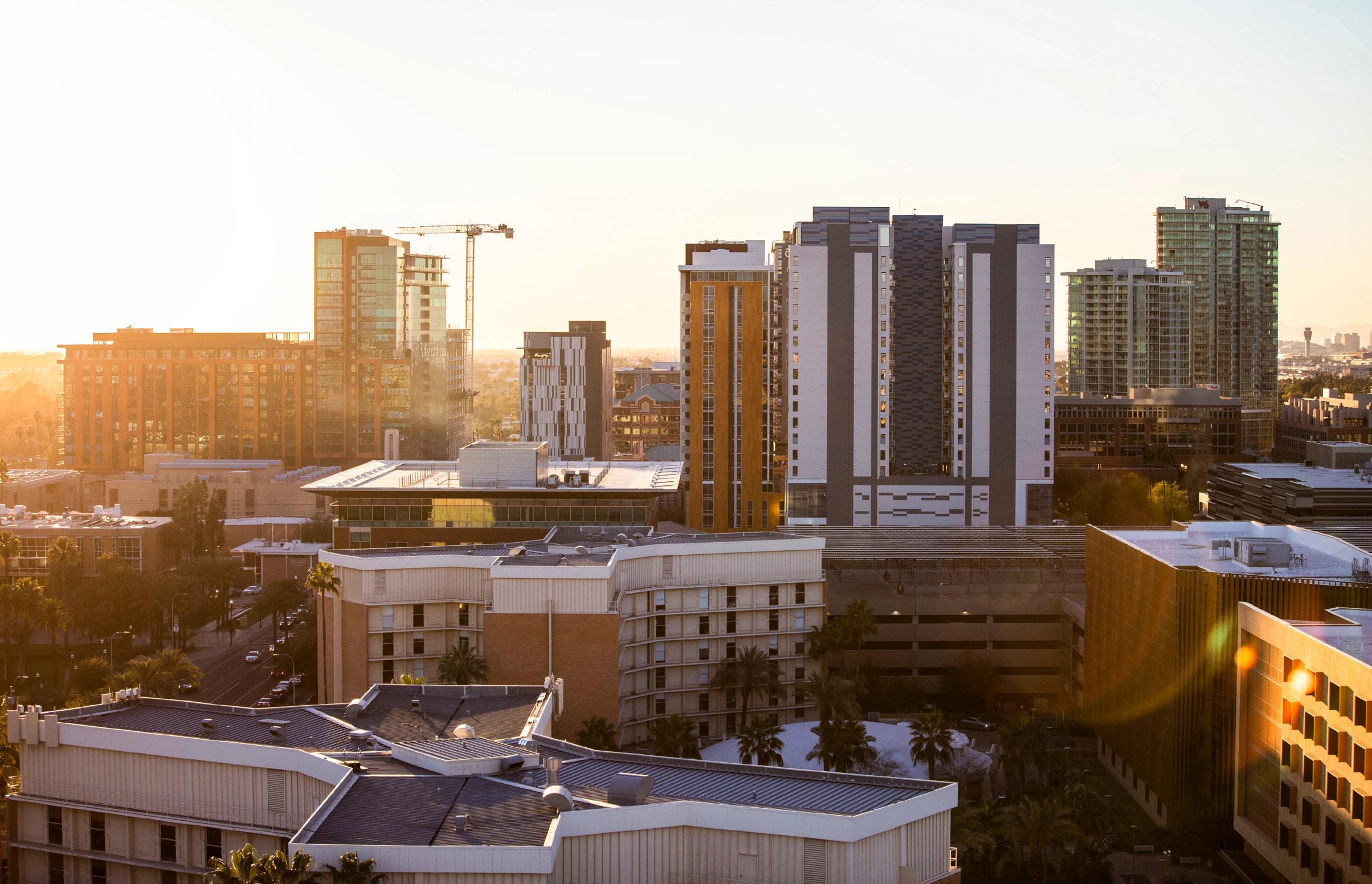
12
Housing in Tempe
Off-campus marketplace
From listings of dozens of places to live near ASU, a roommate board, to free resources educating renters, the ASU Off Campus Marketplace is a great starting point when looking for off campus housing. Under the listings tab, students and scholars can search for apartments and houses for rent near each of the ASU campuses. You can use the filters option to search for specific features you would like in your renting space. Under the roommates tab, people can search for others looking for roommates for off-campus housing. You can also find listings for subleasing contracts near the ASU campuses under the Subleases tab. For more information about what subleases are, why you might consider a roommate, and renters education in general, view the Renter Education tab. You can also submit a landlord issue complaint through this portal. offcampushousing.asu.edu
Short-term stays
If your stay in the U.S. is short, you may want to consider staying in a hotel. Some hotels have a discounted rate with ASU. Please visit visit.asu.edu/ travel for more information on hotels near campus and discounted rates.
Furnished
University Point
Gateway Tempe
Canvas Tempe
Nine20 Tempe
Vertex
The Rise on Apache
Apollo Tempe
Villas on Apache
Atmosphere Tempe
The Oliv Tempe
University House
Tempe
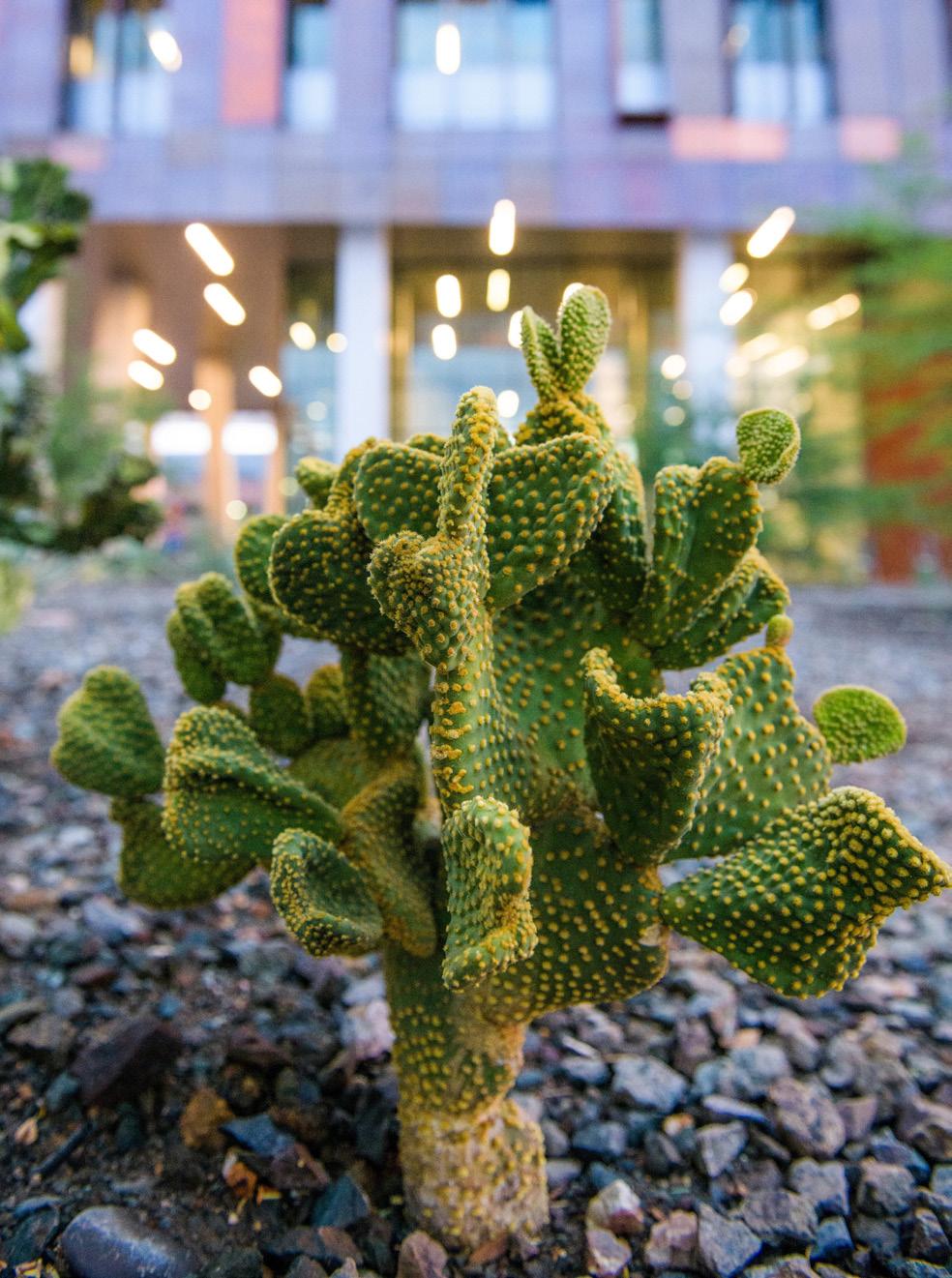
Sol Redpoint*
Alight Tempe*
Un-Furnished
The Fleetwood
The Hyve
Tempe Metro
Paseo on University
Murietta at ASU*
Agave
Sonesta
Skye at Mcclintock
Station*
Vintage Tempe
Apartments
The District on Apache
The Place on Jentilly
Union Tempe
Nexa
The Warhol
Gracie’s Village
Thrive Tempe
* Denotes short term rentals available
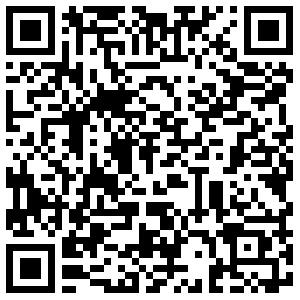
ASU off-campus housing guide
Full of housing tips for off-campus housing students and scholars, the ASU Off-Campus Housing Guide is another amazing free resource when looking for renting spaces off-campus. If you have found a building or apartment complex you are interested in renting, look to see if you can find a review of the space on pages 10-14 of the housing guide. For more information about what other factors you should consider when looking for off-campus housing, visit page 26 of the guide. For a listing of the various renting complexes and buildings near each of the ASU campuses, go to pages 46-62 of the housing guide. This list also provides the approximate renting rates and a short checklist of the amenities included in each of the spaces. The housing guide also lists the contact information for additional resources for off-campus housing.
issuu.com/statepressmagazine3/docs/ hg_draft_2022-23_final
13
Medical insurance and healthcare
Medical insurance requirements
As a J-1 scholar, you have strict healthcare benefits you must maintain. These benefits have been set by the U.S. Department of State to help you maintain your health while in the U.S. The Department of State regulations require all J-1 Exchange Visitors to have medical insurance for themselves and any accompanying J-2 family members for the duration of their program.
In addition, J-1 Exchange Visitors and their J-2 dependents may be subject to the requirements of the Affordable Care Act.
Willful violation of the insurance requirements can result in termination of your J-1 program by the ISSC, in accordance with immigration regulations.
Fulfilling this insurance requirement is essential, not only because of the U.S. Department of State regulations, but because medical treatment in the United States can be very expensive, especially without proper insurance coverage.
It is the J-1 Exchange Visitor’s responsibility to notify the ISSC of dependents who are currently in the United States or who arrive later and present evidence of appropriate insurance coverage for them. It is your responsibility to provide proof of continuous insurance coverage to the ISSC.
ASU Health Insurance: Review your department invitation letter to find out if you are eligible for the ASU Faculty and Staff Health Insurance Plans. If so, note that current ASU employee benefits guidelines reflect that insurance policies will be effective the first day of the pay period following completion of enrollment process.
Of ASU’s insurance plans, only the Triple Choice Plan will meet the requirements. Please note that ASU medical insurance does not cover medical evacuation or repatriation of remains to the home country. Thus, eligible ASU Exchange Visitor employees electing to enroll in an ASU health insurance plan will also need to purchase a separate insurance policy for medical evacuation and repatriation of remains.
Healthcare in the U.S. is set up differently than in most other countries, so much of the terminology and the process can be confusing for visitors.
Your insurance must meet the following requirements:

14
Coverage Requirement
Medical coverage Medical evacuation Deductible Repatriation of remains $100,000 per incident $50,000 $25,000 $500 per incident or less
What is a deductible?
A deductible is the amount you pay for coverage health services before your insurance company will pay. Yours will be $500 or less with your insurance requirement as long as you visit an in-network provider, meaning they will accept insurance from your provider.
After you meet your deductible, you usually only have a copayment or coinsurance for your covered services while your insurance company will pay the rest.
Where do I go for an appointment?
The U.S. has many different types of health services and doctors, including emergency services (hospitals), urgent care facilities, and various clinics and healthcare professionals.
Emergency (hospital)
The Emergency Room (ER) at the hospital is intended and equipped for true emergencies. Please DO NOT visit the ER for non-life-threatening emergencies as an urgent care facility will be better suited for treatment. Urgent care facilities also tend to be less costly.
Visit the ER for care if you experience the following or similar: allergic reactions to food, animal or bug bites, broken bones, chest pain, constant vomiting, continuous bleeding, severe shortness of breath, deep wounds, weakness or pain in a leg or arm, head injuries or unconsciousness, etc.
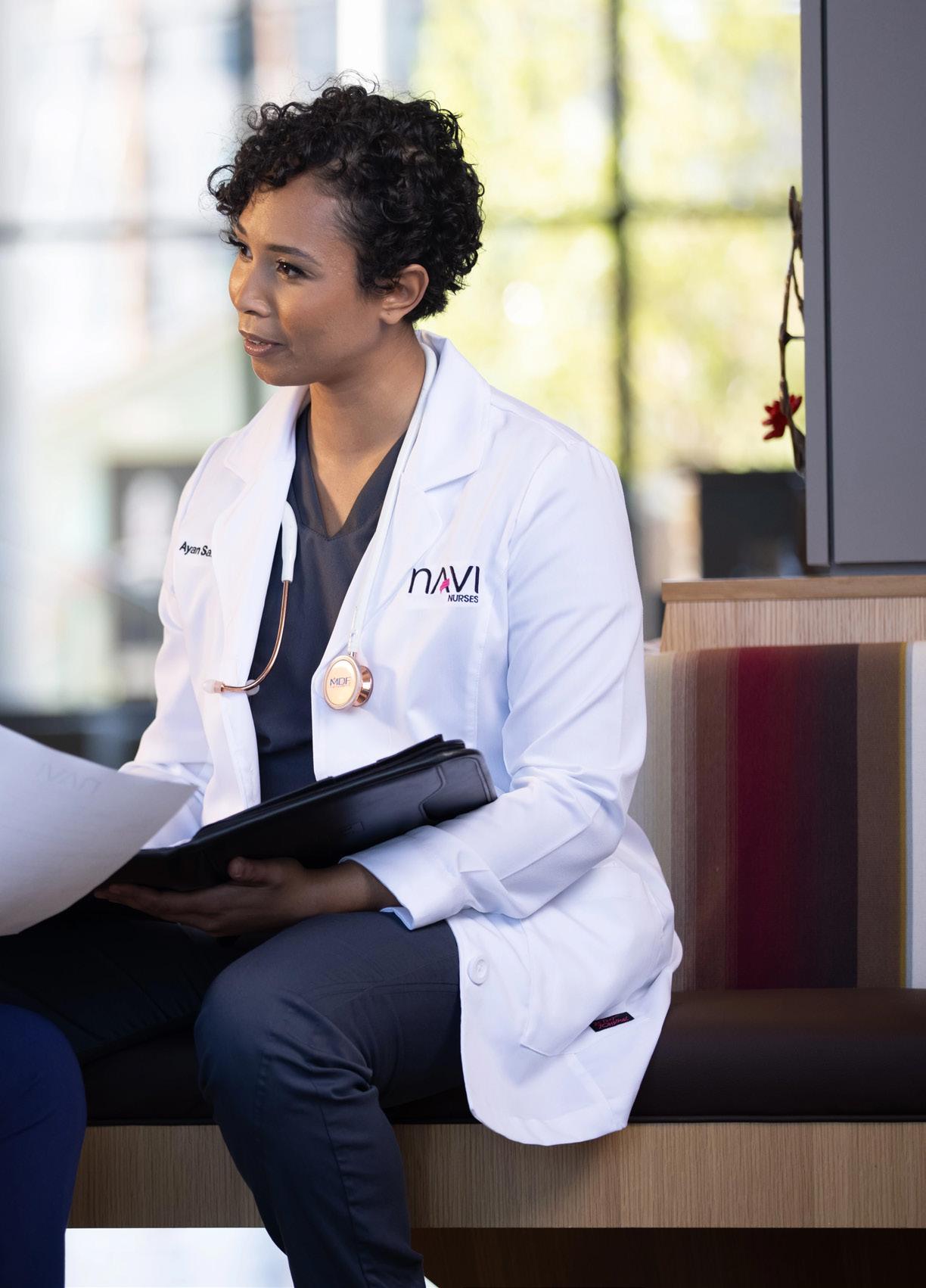
Tempe St. Luke’s Hospital
1500 S Mill Ave
Tempe, AZ 85281 (480) 784-5500
0.7 miles from Tempe Campus
Banner Desert Medical Center
1400 S Dobson Rd
Mesa, AZ 85202 (480) 412-3000
5.0 miles from Tempe Campus
Banner – University Medical Center Phoenix 1111 E McDowell Rd
Phoenix, AZ 85006 (602) 839-2000
1.6 miles from Downtown Phoenix Campus
St. Luke’s Medical Center
1800 E Van Buren St
Phoenix, AZ 85006 (602) 251-8100
2.1 miles from Downtown Phoenix Campus
Gilbert Hospital 5656 S Power Rd
Gilbert, AZ 85295 (480) 984-2000
0.8 miles from Polytechnic Campus
Banner Thunderbird Medical Center 5555 W Thunderbird Rd
Glendale, AZ 85306
(602) 588-5555
1.8 miles from West Campus
15
Healthcare
Urgent care facilities
Urgent Care facilities are beneficial when you need immediate attention or your health provider’s offices are closed. Visit an Urgent Care if you experience the following or similar: fever without a rash, vomiting or persistent diarrhea, abdominal pain, wheezing or shortness of breath, dehydration, moderate flu-like symptoms, sprains and strains, small cuts that may require stitches, etc.
Finding a healthcare professional
You should visit a clinic or healthcare professional for all other concerns, such as: check-ups, general appointments, vaccinations, etc.
ASU Health Services
Please go to eoss.asu.edu/health in order to find a location near you. ASU Health Service Centers are staffed by physicians and nurse practitioners that are board-certified in emergency medicine, family medicine, gynecology, internal medicine, neurology, orthopedics, otolaryngology (ear, nose and throat), rheumatology, and sports medicine.
CVS Minute Clinic
Please go to cvs.com/minuteclinic in order to find a location near you. CVS Minute Clinics are staffed by nurse practitioners and physician assistants who provide treatment for common family illnesses and injuries, administer vaccinations, conduct physicals and wellness screenings, and offer monitoring for chronic conditions.
Planned Parenthood
Please go to plannedparenthood.org to find a location near you. Planned Parenthood health centers provide a wide range of safe, reliable health care, which helps prevent unintended pregnancies through contraception, reduce the spread of sexually transmitted infections through testing and treatment, and screen for cervical and other cancers.
Finding other healthcare professionals
To find a physician near you, please visit: doctor. webmd.com

To find a dentist near you, please visit: mouthhealthy.org/en
To find an optometrist (eye doctor) near you, please visit: aoa.org
To find a pediatrician (children’s doctor) near you, please visit: zocdoc.com/pediatricians
Note: You can always use your health insurance company’s website to search for healthcare providers who are covered by your insurance.
Disclaimer: These medical institutions are not verified personally by ASU and/or its affiliates, and are merely stating locations when, and if, medical attention is needed for you or your dependents.
16
Health and safety
Police and fire/medical services
For emergencies, you should always call 911, especially if the emergency is life-threatening. Call emergency services for any situation that requires immediate attention. For example, if you see a fire, a car crash where someone is injured, a crime (especially if it is in progress), or if someone requires immediate medical attention, call 911 right away. Call nonemergency services when a situation requires attention, but not necessarily immediately.
ASU
Police cfo.asu.edu/police
(480) 965-3456
Scottsdale
Police scottsdaleaz.gov/police
(480) 312-5000
Fire scottsdaleaz.gov/fire
(480) 312-8000
Tempe
Police tempe.gov/government/police
(480) 350-8311
Fire tempe.gov/government/fire-medical-rescue
(480) 858-7200
Mental health 24-Hour Crisis Hotlines - National 1-800-7848433 - HopeLine Suicide Hotline
1-800-273-TALK or 1-800-273-8255 National Suicide Prevention Lifeline
ASU LiveSafe App
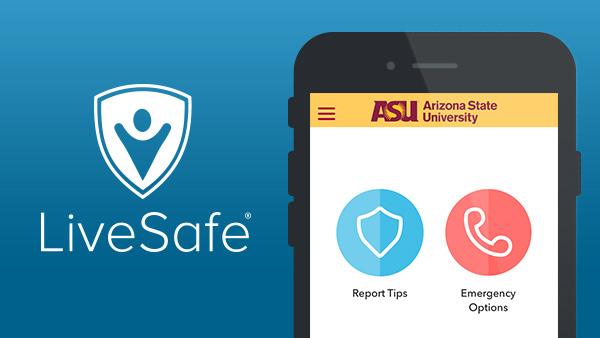
Connect with ASU Police and campus safety services
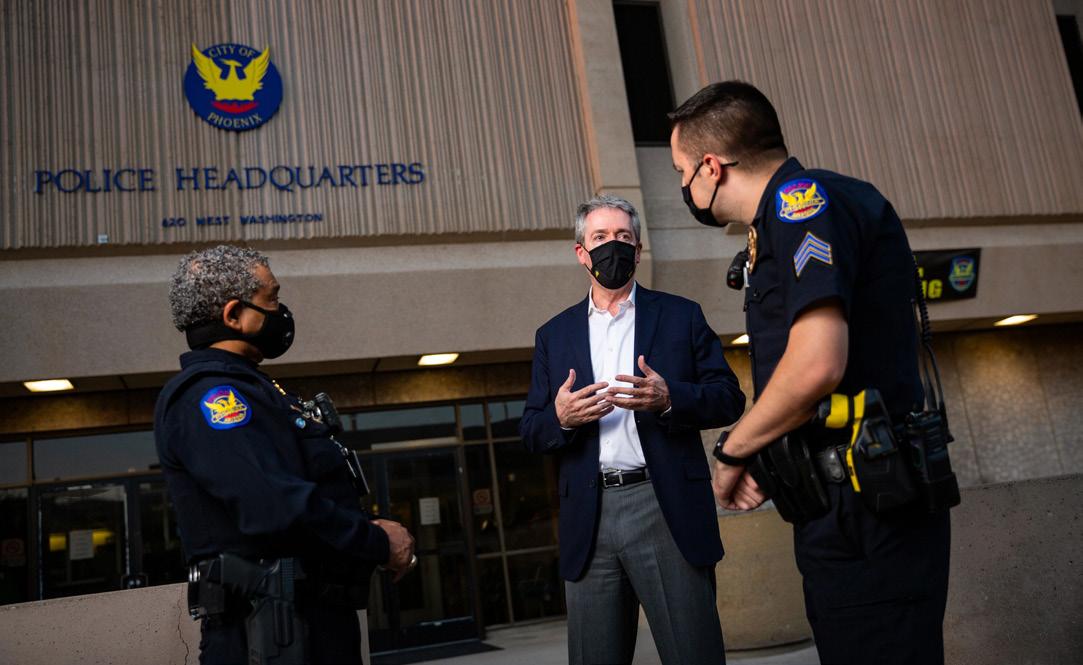
cfo.asu.edu/livesafe-mobile-app
Mesa
Police mesaazpolice.gov/about-mesa-pd
(480) 644-2211
Fire
fire.mesaaz.gov/home-fire
(480) 644-2101
Phoenix
Police
phoenix.gov/police/contact-police
(602) 262-6151
Fire phoenix.gov/fire
(602) 495-5555
17
Transportation in the U.S.
There are many different modes of transportation available to get around Tempe and the other ASU campuses. You can walk, bike, take the bus, light rail/streetcar, drive or use a rideshare service.
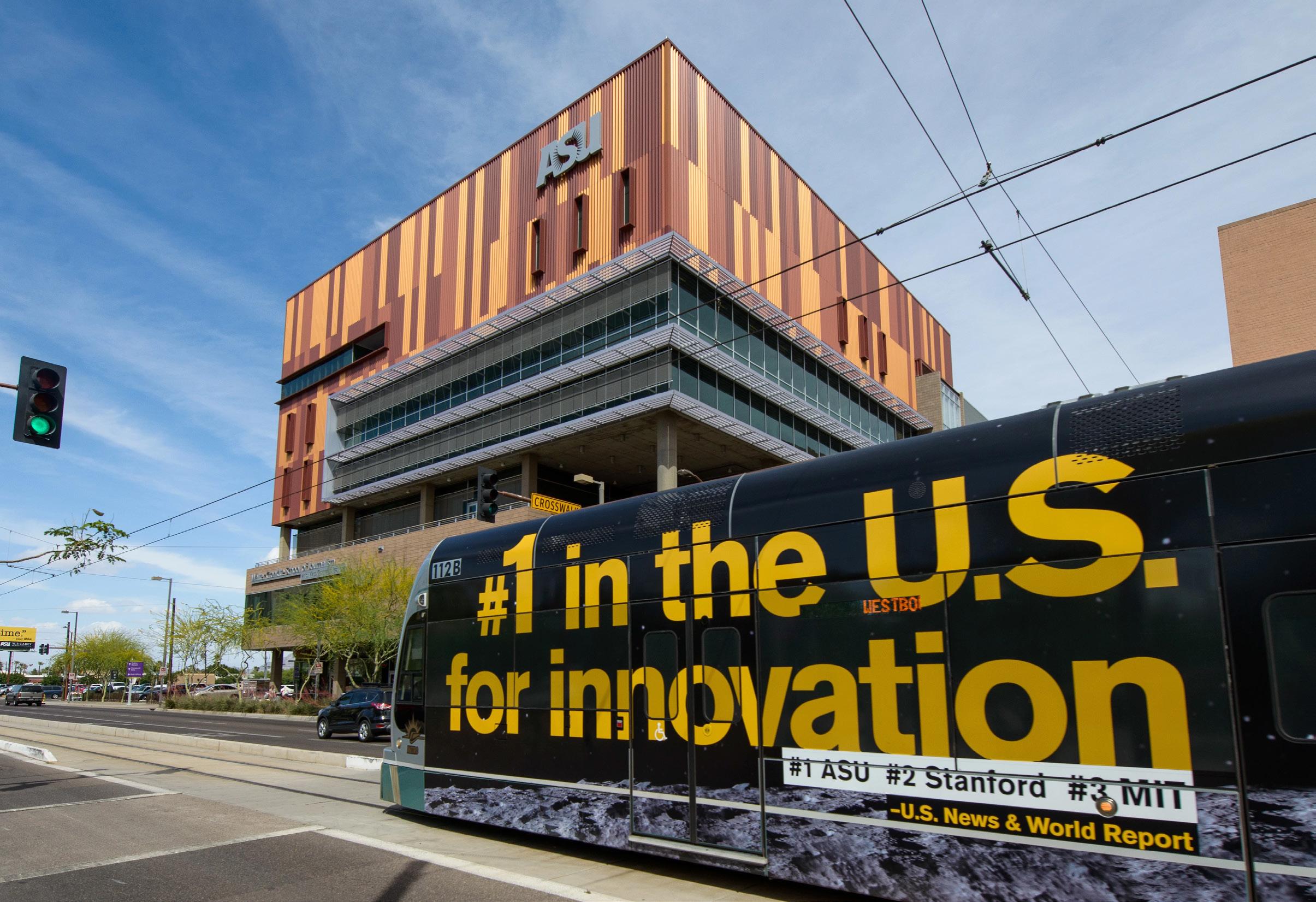
The Tempe campus and Downtown Tempe are very bike and pedestrian friendly with great bus and light rail connections. Please visit valleymetro.org for more information on routes and scheduling. ASU students, faculty and staff can purchase a discounted Valley Metro pass through Parking and Transit Services: cfo.asu.edu/transportation. There are also several free buses provided by Valley Metro, including Tempe Orbit, Tempe
Flash and Mesa Buzz. When planning a trip you can use the Valley Metro trip planner: valleymetro.org/trip-planner.
You can also use car services and rentals, more information at cfo.asu.edu/car-rentaltransportation-services.
ASU is a gold-level Bicycle Friendly University, as designated by the League of American Bicyclists. For information about cycling, visit cfo.asu.edu/bike.
ASU offers free buses between all the campuses, more information on this service can be found at cfo.asu.edu/shuttles.
18
Buying a used car
Used cars are less expensive than new cars, but the buyer must be willing to assume the risk of car trouble and repair costs. Check kbb.com for average prices of different years and models. You will probably be able to get the best deal on a car from a private person who advertises in the classified ads of local newspapers. Any reputable person selling a used car will allow you to take the car to a garage mechanic not associated with the seller for a thorough inspection (called a “diagnostic check”). Mechanics usually charge $50-60 for this service.
Paying for a car
You can often get the best price for a car by offering to pay the full amount in “cash.” In this case, it means a cashier’s check from a bank or traveler’s check. Be suspicious of anyone asking you to bring the full amount in actual cash (bills). It is dangerous to carry large amounts of money with you
Financing
Whether buying a new or used car through a dealer, compare the cost of different methods of financing. Loans may add 20-30% to the total price of the car. If you should decide to buy on credit, it is best to do so through a credit union, bank, or savings and loan association. Remember, before signing ANY documents, make certain that you understand all the details of the sale and payments required. Keep copies of all your documents.
Before you buy a car
There are a variety of websites that provide a lot of helpful information about different vehicles and survey the level of customer satisfaction. Some helpful websites include: carfax.com or kbb.com. Doing this research will help educate you about which car will fit your needs best, and will also give you an idea of what types of cars fit your budget.
Automobile insurance
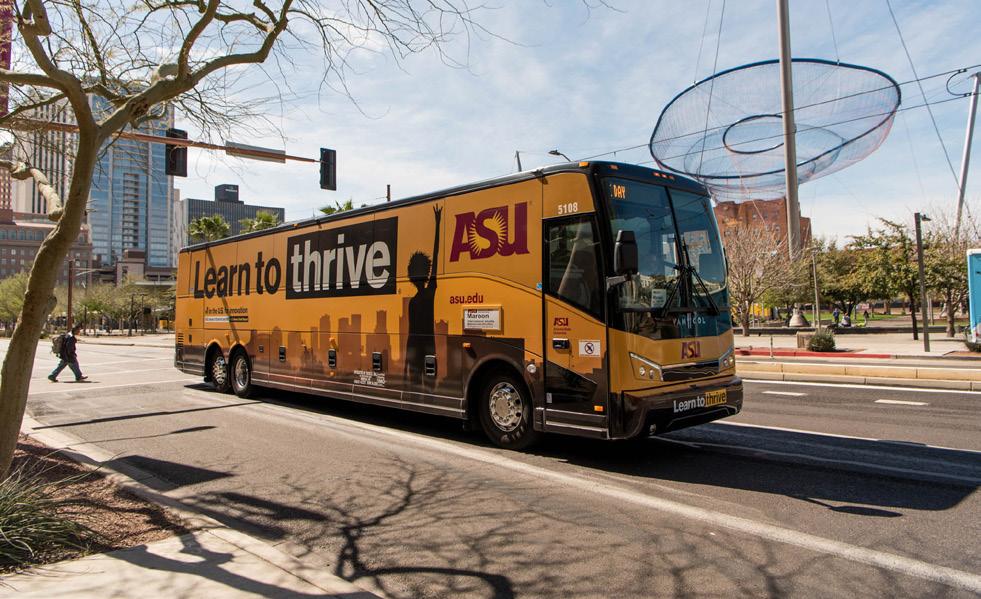
Drivers of automobiles, motorcycles, and other motor vehicles have a financial and legal responsibility in case of an accident that involves injury or death or damage to another vehicle or property. Do not drive without insurance! There can be very serious legal and financial consequences if you do not have insurance. More information about car insurance can be found here: caranddriver.com/car-insurance/ a36291499/car-insurance-usa-forforeigners/
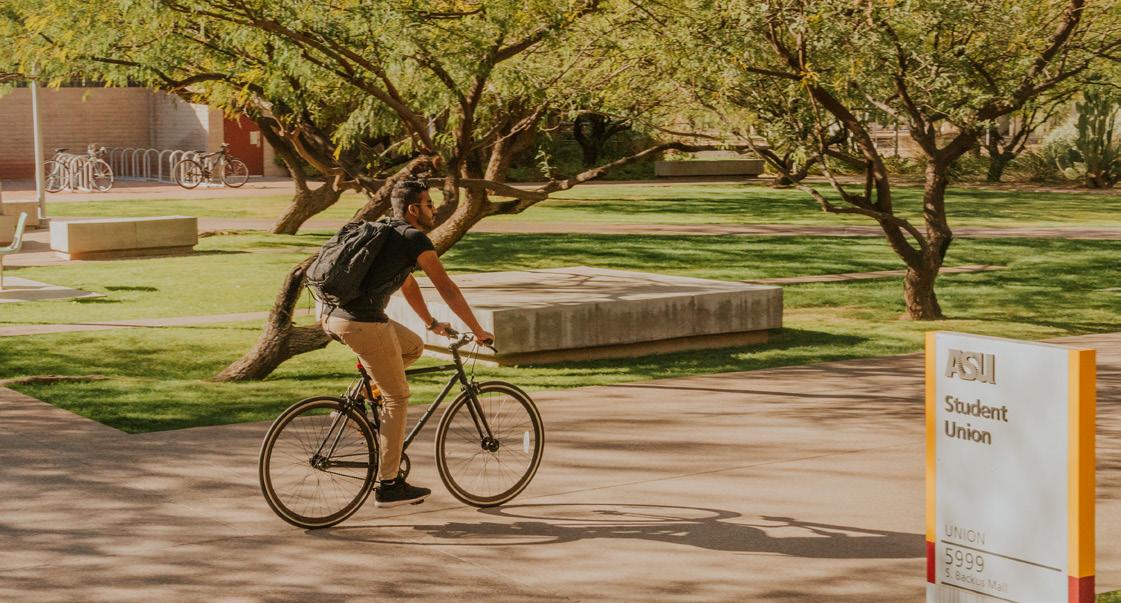
Buying a new car
Each car dealer offers different prices. After you choose a model, you must decide about the “options” or special features. Look at different cars and models, compare prices and “option” costs, and get advice from experienced car buyers, not just from the salespeople.
19
cfo.asu.edu/transit skyharbor.com gatewayairport.com cfo.asu.edu/bike cfo.asu.edu/parking Carmax.com Carvana.com Uber.com lyft.com Zipcar.com
Banking
It is a good idea to open a bank account as soon as you can. A bank account is required to conduct most business transactions in the U.S. You will need a checking account to be able to pay bills, rent, deposits for housing, etc. Typically, to open a bank account, you will need a social security number, but if you do not have one you should be able to use your passport number instead.
Checking account Savings account
Useful if you have bills to pay on a regular basis (credit card, phone, rent, utilities). There is usually no minimum balance required but usually no interest earned either. Some checking accounts earn interest but usually require a larger opening balance. A monthly fee may be charged.
Debit cards
Debit cards allow you to pay for goods and services directly from your bank account, reducing the need for cash. You can request a debit card when you open your checking or savings account or later if you decide you would like one.
Can be used for storing/saving money and earning interest. Might have a monthly limit on how much you can withdraw and/or a minimum balance.
Credit cards
Requirements for obtaining a credit card and interest rates charged on unpaid balances vary among banks. Keep in mind that it is common to have a checking or savings account with one bank and a credit card with another.
How to set up an account
1. Select a bank or credit union
2. Visit the bank/credit union or their website

3. You will need at least 2 forms of identification (passport, driver’s license, utility bill with current address, etc.)
4. Research the different accounts (checking account will be required)
5. Start the sign up process and provide your information
6. Financial history information
7. Add funds to your account
20
Valley National Bank Geodesic Dome
Banks and credit unions (no SSN required)
Bank of America: bankofamerica.com
Chase: chase.com
Citi: online.citi.com/US/ag/open-a-bank-account
PNC Bank: pnc.com/en/personal-banking/banking/student-banking.html
Wells Fargo
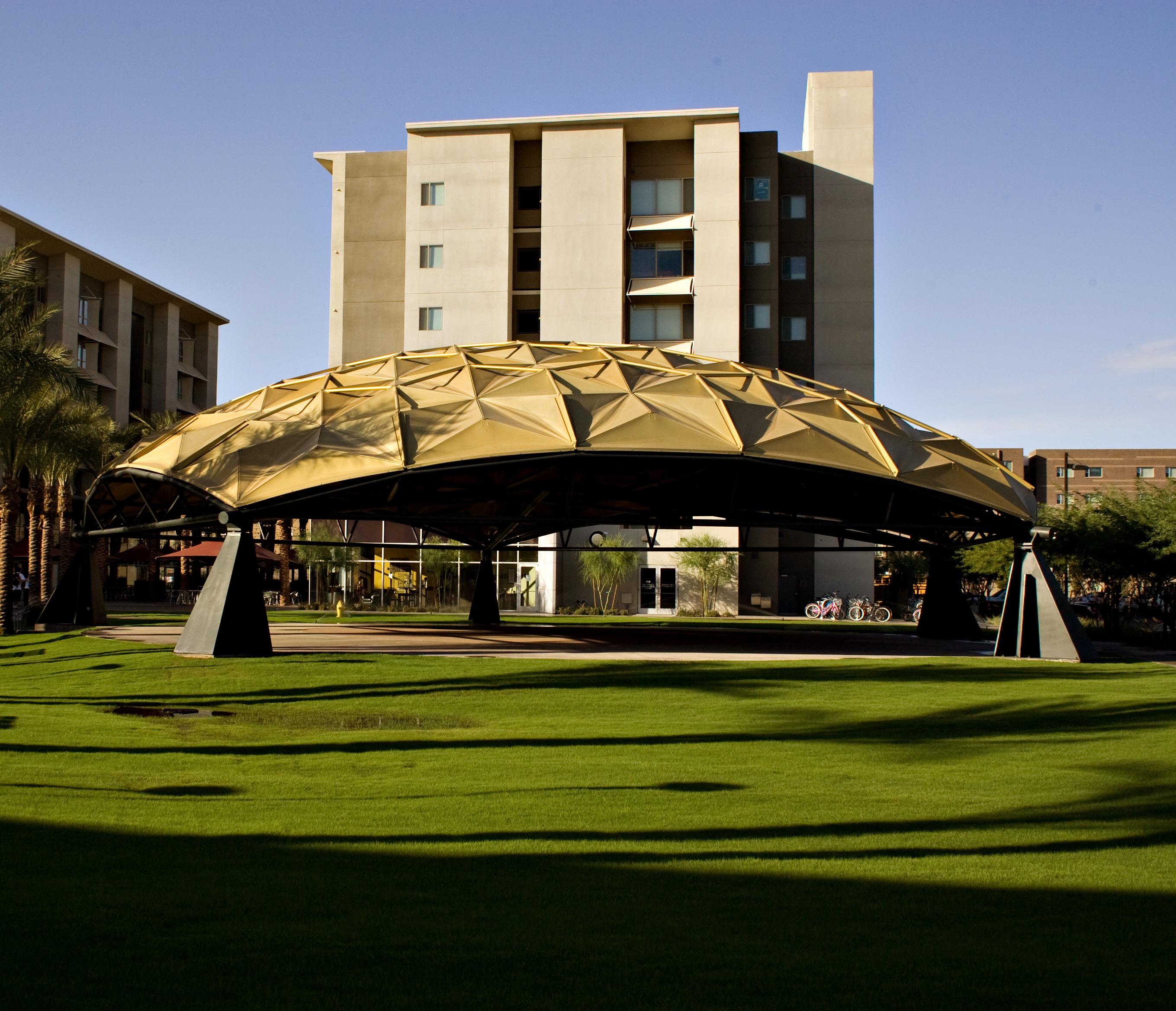
Checking: wellsfargo.com/checking
Savings: wellsfargo.com/savings-cds
MidFirst Bank (on-campus location): midfirst.com
21
Dome story
A branch of the Valley National Bank was located at the North West corner of Apache Boulevard and Rural Road. When Barrett, The Honors College expanded, they moved the golden geodesic dome of the Valley National Bank. This dome became the ramada at the Vista Del Sol housing complex.
Cell phones
Phone carriers
▶ T-Mobile
▶ Verizon
▶ AT&T
▶ Mint Mobile
▶ Metro by T-Mobile
▶ Google Fi
▶ Consumer Cellular
▶ Boost Mobile
▶ Visible
▶ Cricket
When selecting a cell phone plan, you have two main options: A contract. Contract plans can offer more phone or plan discounts. However, a Social Security Number (SSN) or an initial deposit may be required.
A pay-as-you-go plan. These plans have slightly higher rates on outgoing calls and messaging. Pay-as-you-go plans are convenient because there is no SSN requirement.
Wireless plans are also offered from cell phone companies, but please note that plans in the U.S. are different from plans abroad. Be sure to read plan details carefully before purchasing a plan.
ASU employees can receive discounts on internet and wireless providers. Please visit cfo.asu.edu/internet-wireless-discounts to see available discounts and providers.
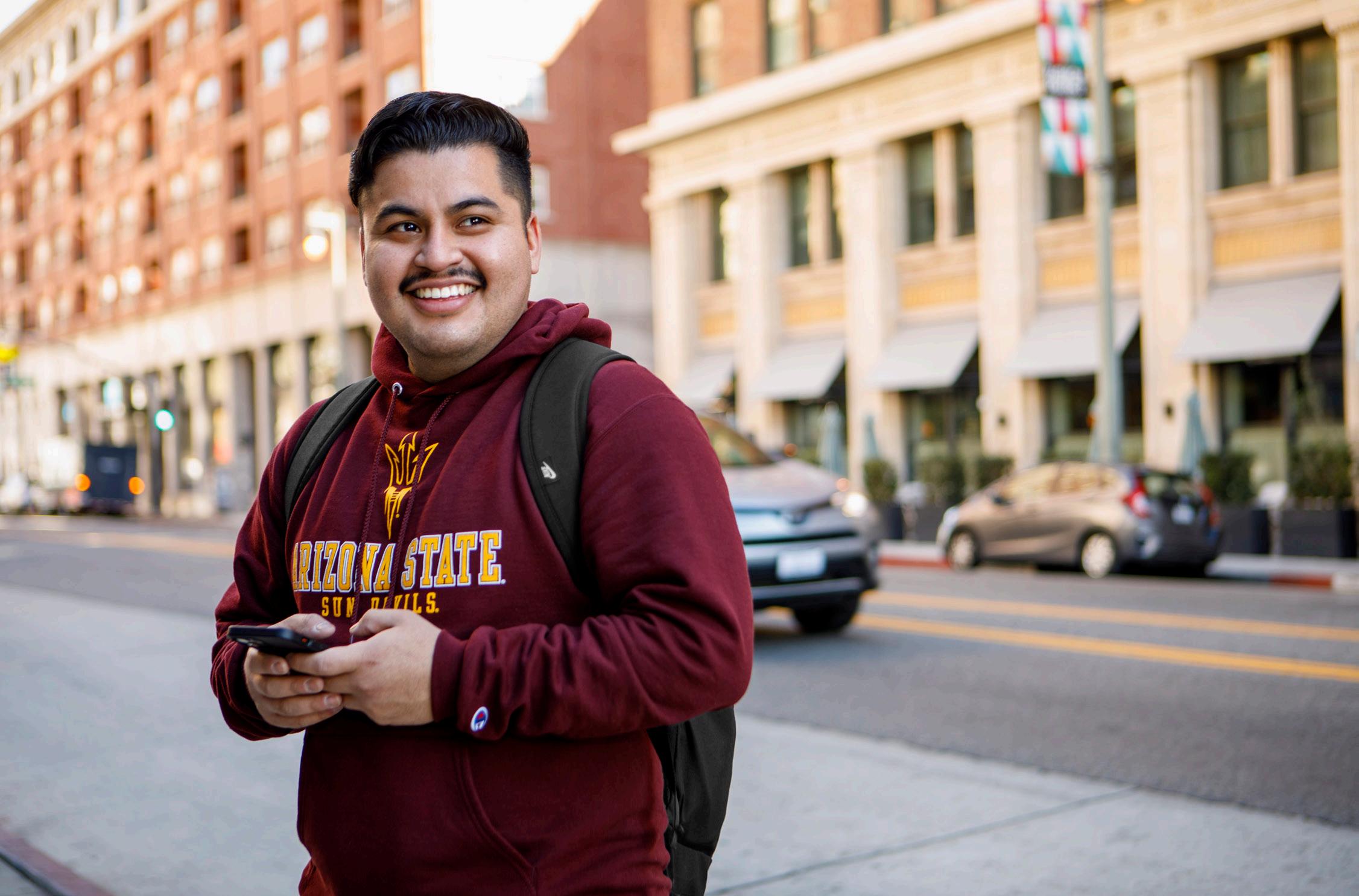
22
Social Security Number (SSN)
As a J-1 visitor in the U.S., you may need a Social Security Number (SSN). Many places will ask you for one, especially banks and apartment complexes. You do not need an SSN to open a bank account or to rent an apartment in the U.S. if they ask you for one, you can say that you are an Exchange Visitor in the U.S. and do not have one but that they can look you up using your passport number.

That being said, you can certainly apply for an SSN if you wish. If you do want to apply for one, this site gives good information and a good overview of the process for applying for your SSN including a link to the application form: ssa.gov/pubs/10096.html#3.
Your J-1 Exchange Visitor status allows you to be employed by ASU without applying to USCIS for employment authorization. Go online, print the application form and fill in the application form before you go to the Social Security: officessa.gov/ssnumber.
When you go to the Social Security office, take your passport, your form I-94, your form DS-2019 and your completed application form (SS-5)
There are two Social Security offices where you can apply for a Social Security Card. The Light Rail or city bus (Valley Metro) will take you very close to the downtown Phoenix Social Security office.
This link provides addresses and maps for the two Social Security Card Centers in the Phoenix metropolitan area: secure.ssa.gov/ICON/main.jsp.
23
Drivers License and Identification Card
AZ Identification Card
If you would like to obtain an identification card in the State of Arizona, you will need to do the following:
Begin your application online at azdot.gov/ motor-vehicles/driver-services/driver-licenseinformation/identification-id-card
Determine your identification requirements online at azdot.gov/motor-vehicles/driverservices/arizona-travel-id/identificationrequirements.
Visit your local MVD office to finish the process. You can find the nearest MVD office at azdot.gov/mvd/hours-and-locations
Arizona identification cards are available for adults and children. Please visit azdot.gov/ adot-blog/protect-your-child-id-card, for more information about identification cards for children.
AZ Driver’s License
Arizona law states that international driver’s licenses do not satisfy Arizona’s requirements. Arizona still requires those with an international driver’s license to obtain an Arizona driver’s license.
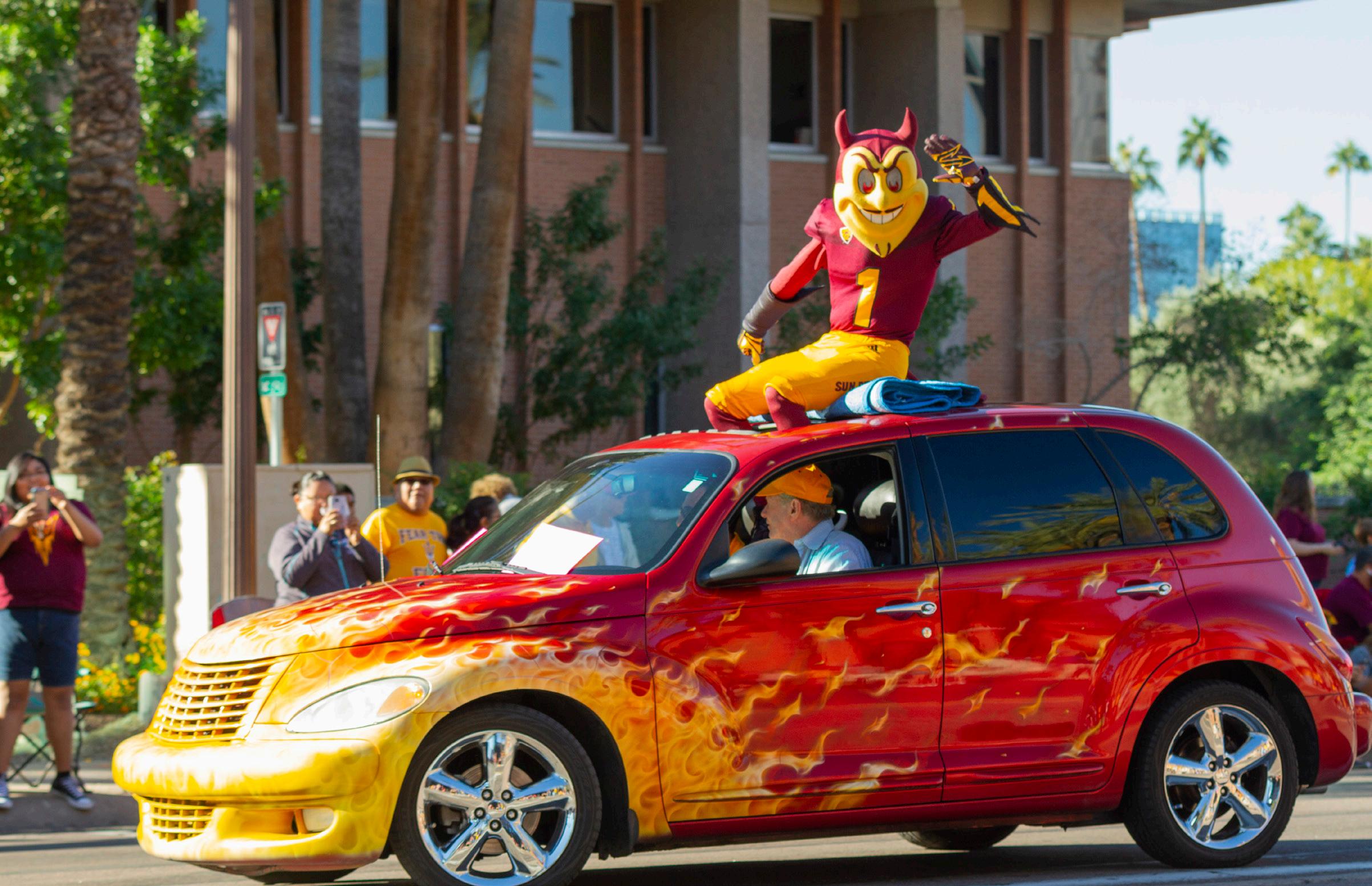
If you would like to obtain a driver’s license in the State of Arizona, you will need to do the following:
Begin your application online at azdot.gov/ motor-vehicles/driver-services .
Determine your identification requirements online at azdot.gov/motor-vehicles/driverservices/driver-license-information/foreignapplicants .
Visit your local MVD office to finish the process. You can find the nearest MVD office at azdot.gov/motor-vehicles/mvd-hours-andlocations
24
Improve your English while at ASU
If you are looking to improve your English skills while at ASU you should check out Global Launch. ASU Global Launch is located on the Tempe campus and offers an English language immersion program. Global Launch offers six different levels of English language courses offered in four or eight week sessions. Global Launch also offers the English Language Program as an online immersion class or as a self-paced online English course. For more information please visit the English Language Program webpage or contact ASU Global Launch. globallaunch.asu.edu/ ELP
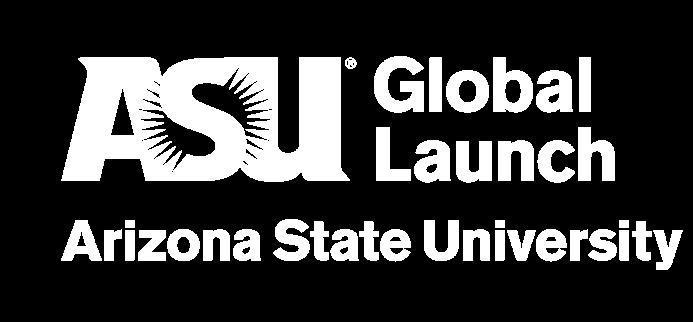
Dates for the immersion program can be found on the web page here globallaunch.asu.edu/session-dates
The Tempe Public Library regularly hosts free table talk groups for speakers of English as a Second Language. They meet once a week to learn and improve common vocabulary, phrasing, and to discuss American culture. Please visit tempepubliclibrary. org/digital-library/research-information/english-as-a-secondlanguage-esl-ell for more information.
The International Students and Scholars Center hosts Scholar English Conversations, a 30-minute one-on-one conversation session to practice and perfect your English. These can be booked though the regular appointment scheduling system.
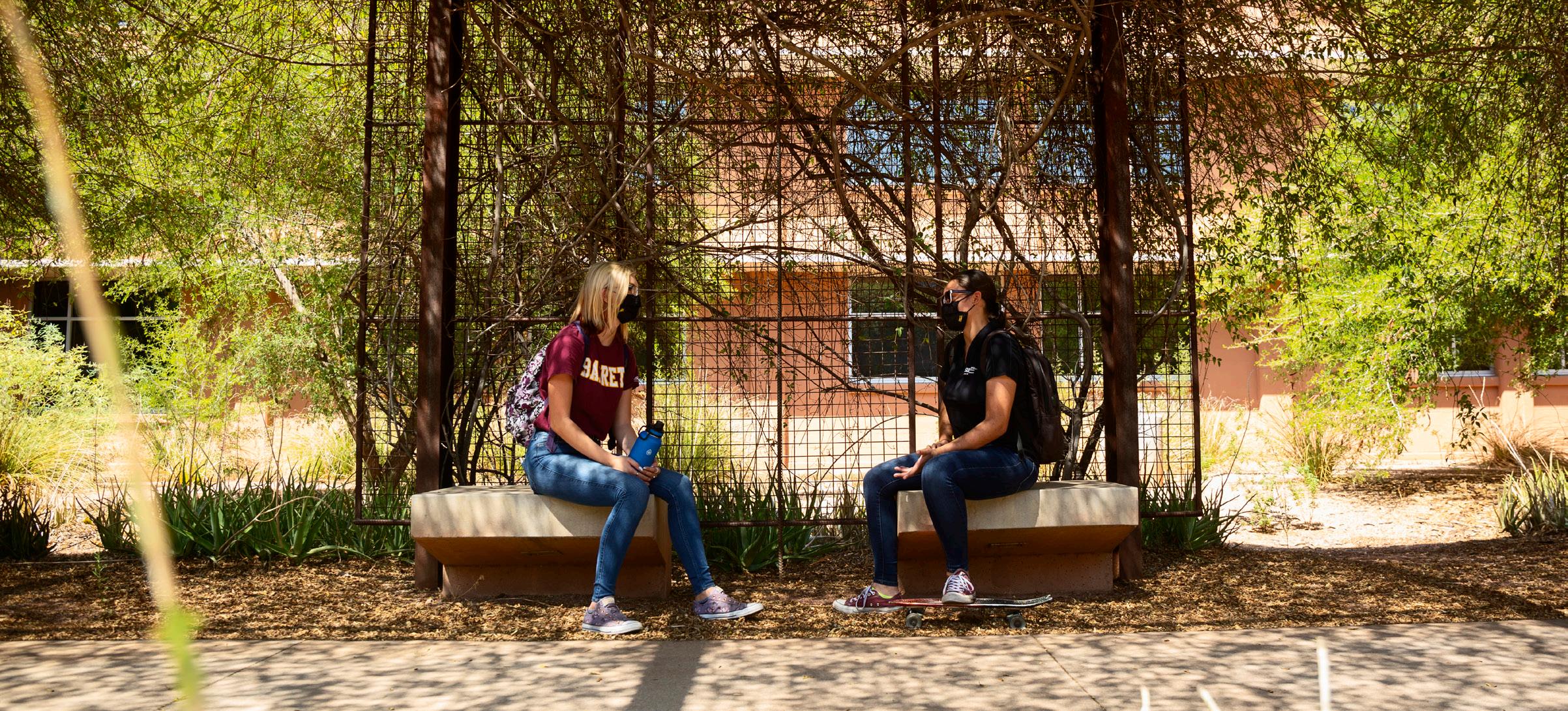
Practice English Online
There are many valuable online resources that you may use to develop your English language skills. Here are a few examples of these resources:

• Usalearns.org
• Duolingo.com
• bbc.co.uk/learningenglish
• really-learn-english.com
25
Contact Global Launch (480) 965-2376 globallaunch@asu.edu
Child care
Although there are various child care centers in the Phoenix Metropolitan Area, Bright Horizons at ASU is a center located on the Tempe Campus that serves as a daycare, preschool, and kindergarten prep. For more information, please visit brighthorizons.com.
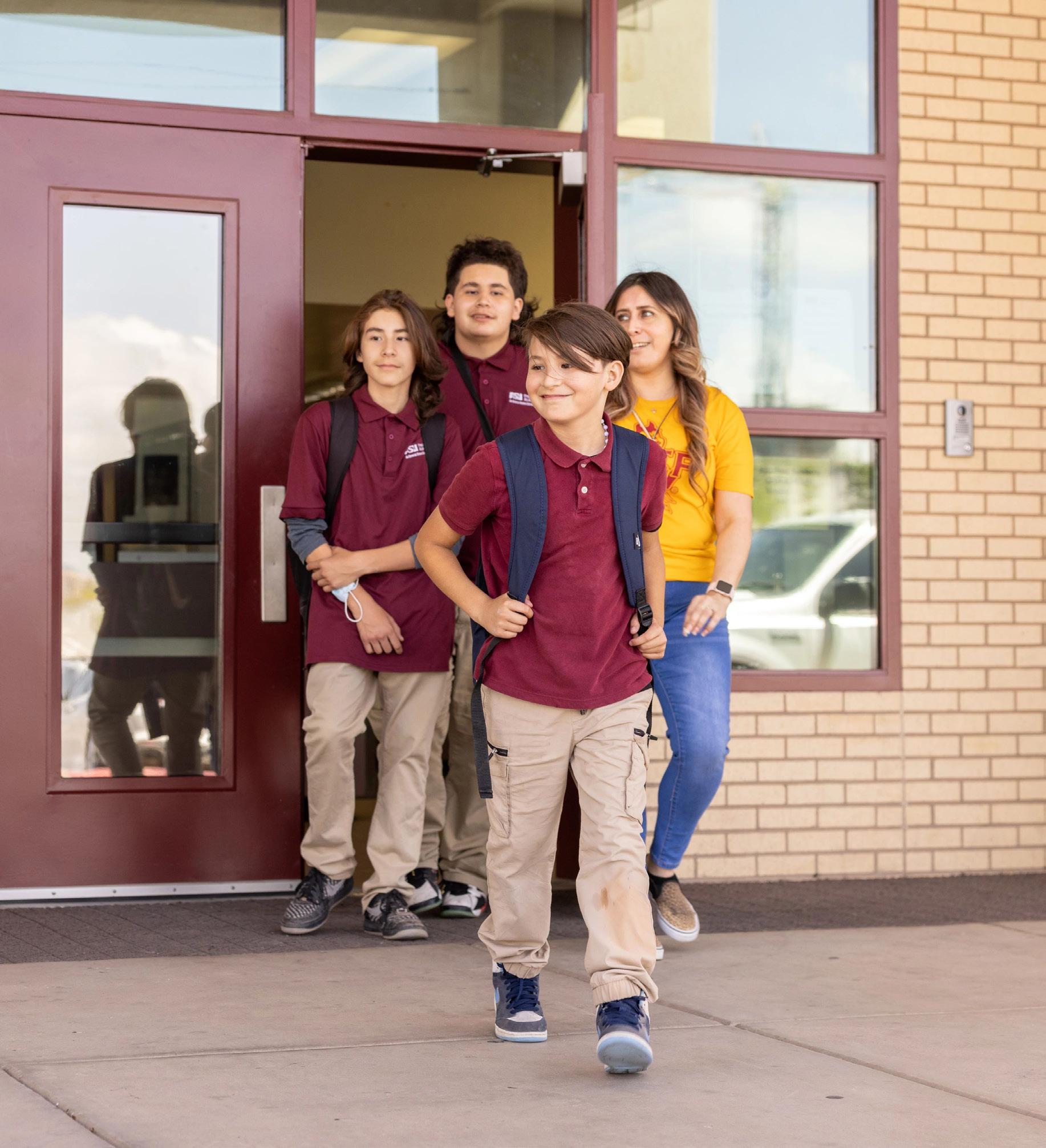
To find a babysitter and/or nanny near you the following websites may be useful to you:
▶ Urbansitter.com
▶ Care.com
▶ sittercity.com
26
Child education
Public Schools
To find public schools near you, please visit greatschools.org/school-districtboundaries-map.
To enroll your child in a public school, first find your school district and contact the school that your child will be attending. There may be different registration requirements for each school, but typically schools will require:
• Document proving child’s age (i.e. birth certificate or passport)
• Document proving residence address (i.e. utility bill, lease agreement, etc.)
Preschool
In the U.S., children who are too young for school often attend preschool. You may be able to enroll your young children in preschool at the public school that they will attend later on, but if they are too young or if you arrive at the wrong time of year, this may not be an option for you. If you cannot enroll your child in preschool at a public school, there are still some private preschool options available. Here are some options to get you started:
▶ asuprep.asu.edu/phoenixelementary/head-startpreschool
▶ asuprep.asu.edu/polypreschool
▶ littlefootlc.com
▶ sunrisepreschools.com/ prospective-parents

▶ maplebearusa.com
▶ valleylearningcenters.com
27
J-2 employment
Work Eligibility
A J-2 spouse or unmarried child between the ages of 16 and under 21 may work in the United States by applying for an Employment Authorization Document (EAD) with the U.S. Citizenship & Immigration Services (USCIS).
How to Apply
▶ Complete the Form I-765 found at uscis.gov/i-765
▶ Gather the supporting documentation required for Form I-765 (found under Instructions for Form I-765). To apply for an EAD in J-2 status, one must also submit a written statement with any supporting evidence showing that your employment is not necessary to support the J-1 but is for other purposes
▶ The filing fee for Form I-765
▶ Send your complete package to the USCIS Phoenix Lockbox
▶ Note: For complete information, see issc.asu.edu/j-1-scholars/j-2-dependents
Job Search
The following websites are great resources to find employment either at ASU or within the Phoenix Metropolitan Area: cfo.asu.edu/applicant
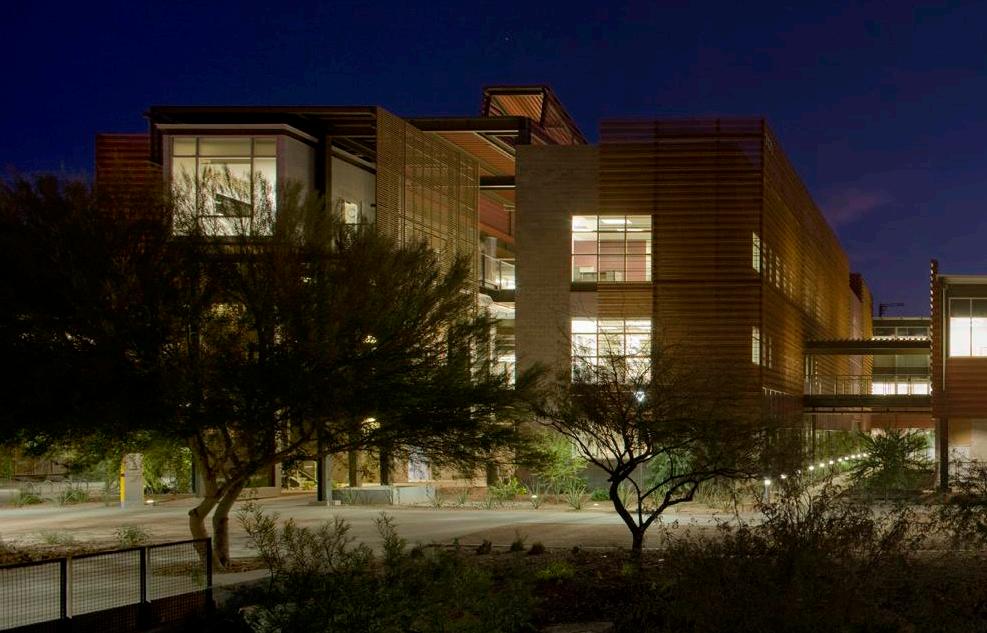
Indeed.com
Monster.com
careerbuilder.com
Need help making a resume or cover letter? career.asu.edu/resumes-and-application-materials
28
ASU campus
The historic ASU Tempe campus offers hundreds of majors that engage undergraduates and graduates in multidisciplinary research and exploration in first-rate laboratories and facilities. Spaces on campus incorporate the latest technology advancing student learning and innovative new curriculum, including virtual reality immersive learning labs and state-of-the-art recording studios. The Tempe campus is home to The College of Liberal Arts and Sciences, the Herberger Institute for Design and the Arts and the College of Global Futures. Colleges with a presence on the Tempe campus that have expanded to other campuses are the Ira A. Fulton Schools of Engineering, Mary Lou Fulton Teachers College, the W. P. Carey School of Business, University College and Barrett, The Honors College. Research entities headquartered on the Tempe campus and integrated throughout the ASU knowledge enterprise include the Biodesign Institute, Julie Ann Wrigley Global Futures Laboratory and the Institute for the Science of Teaching and Learning. The energetic environment of the campus comprises broad pedestrian malls and eclectic architecture set amid subtropical landscaping. Landmarks include the iconic, centuryold Palm Walk; Old Main, the oldest original campus building; Sun Devil Stadium and ASU’s other Pac-12 athletic venues; the ASU Art Museum, a leading contemporary art museum; and the Frank Lloyd Wright-designed Gammage Auditorium. Overlooking campus is Hayden Butte, also known as “A” Mountain, a focal point for the city of Tempe and symbolic to student experiences such as Echo from the Buttes and the ASU Lantern Walk. With an unrivaled commitment to sustainability, the Tempe campus is the most solar-powered of any in the U.S., and offers easy access to all of metropolitan Phoenix through public transit including light rail.
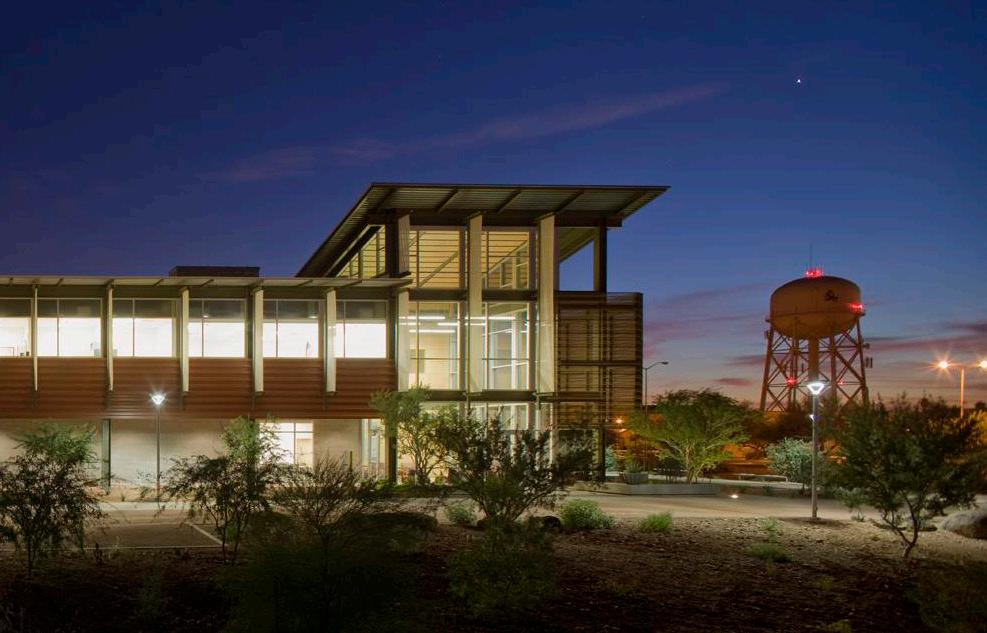
29
ASU Libraries
The ASU Library One Search enables you to search all available resources in the ASU Library system including: scholarly and peer-reviewed articles, books, ebooks, journals, dissertations, music, film, video, government documents, newspaper articles, reviews and course resources. over 360 million print and digital resources are available and can be found through One Search: lib.asu.edu
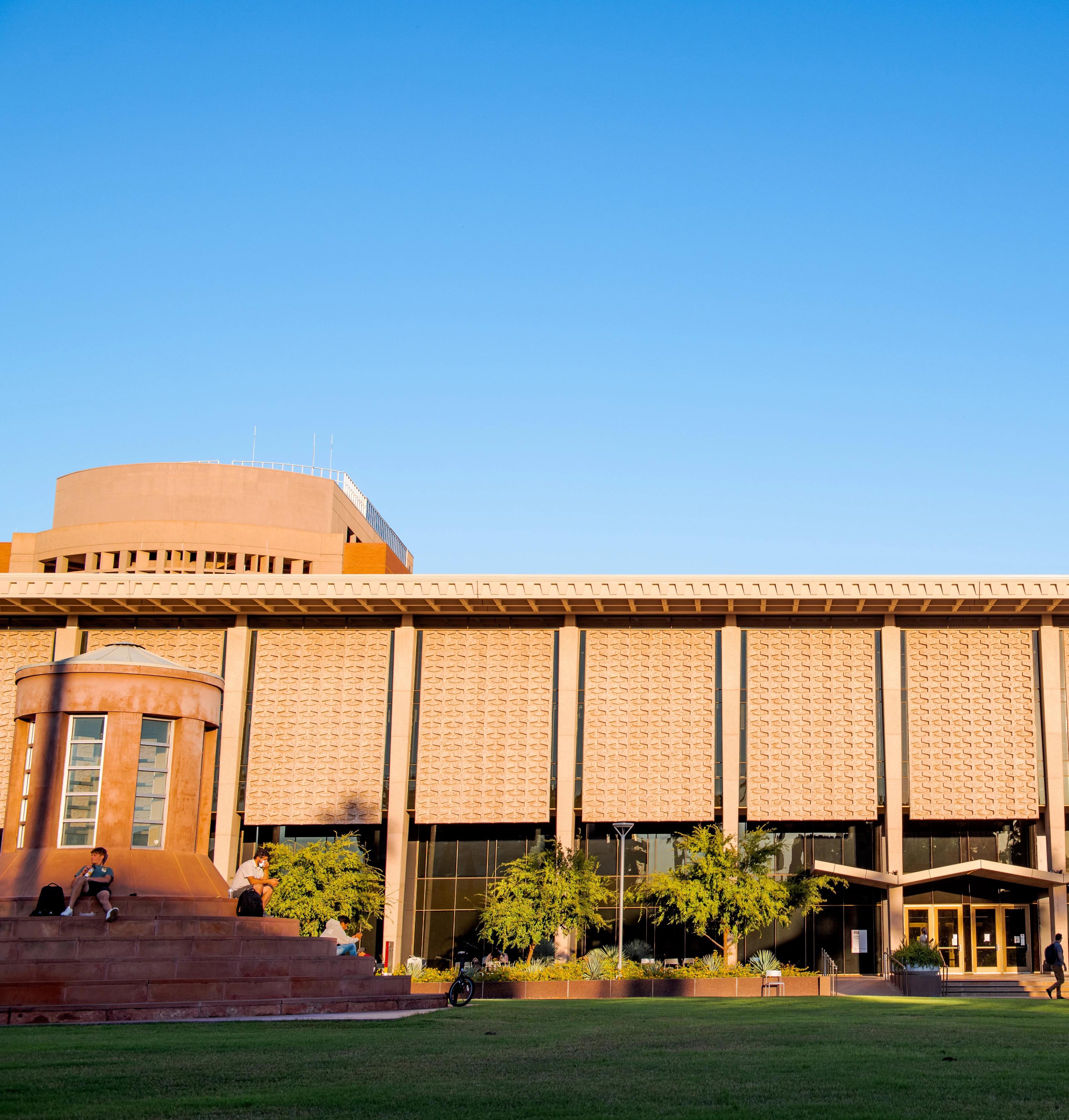
30
ASU is host to seven libraries across four campuses.
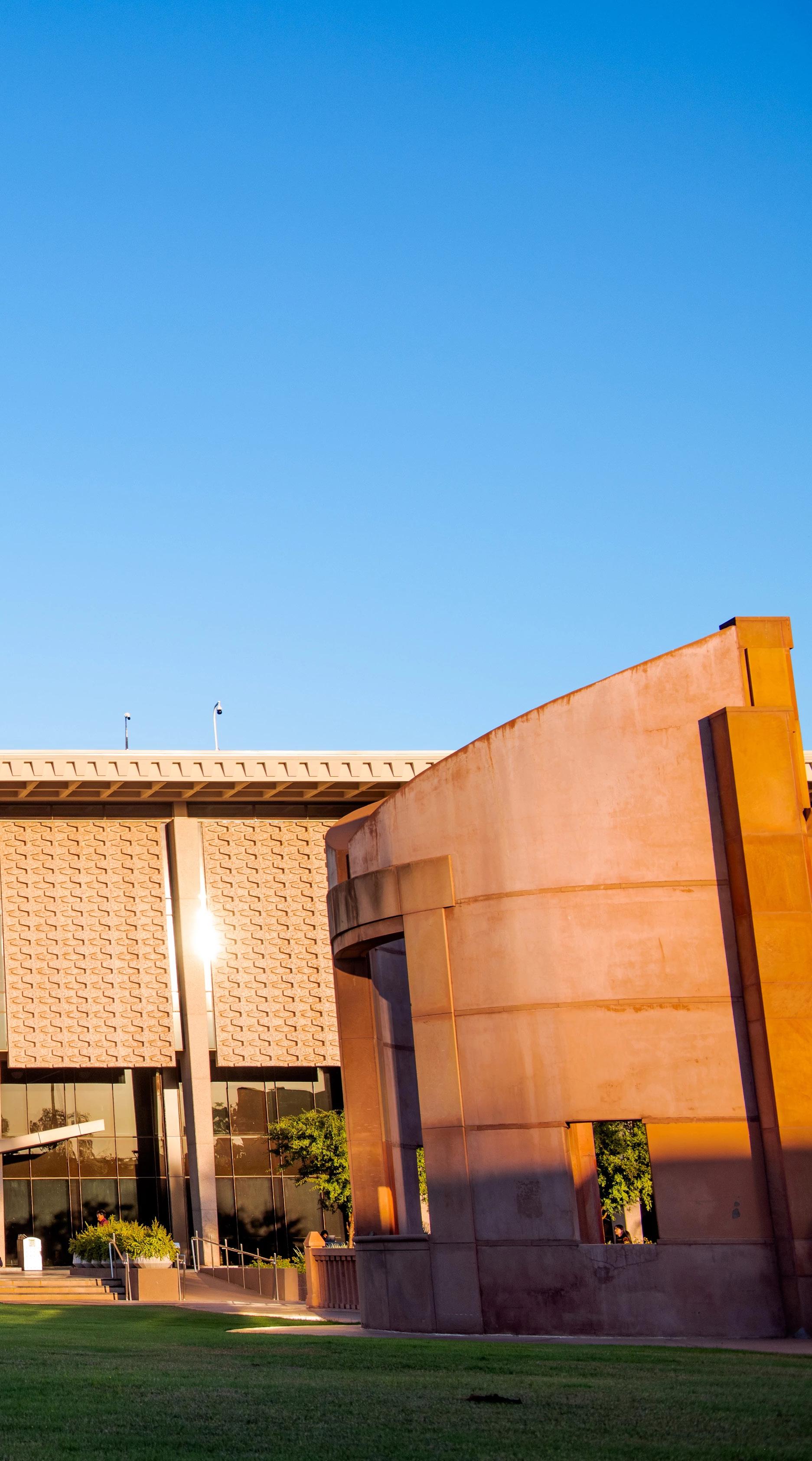
Design and the Arts Library
810 S Forest Mall CDN 153, Tempe
Downtown Phoenix campus Library
411 N Central Ave, #L1-61, Phoenix
Fletcher Library
4701 W Thunderbird Rd, Phoenix
Hayden Library
300 E Orange Mall, Tempe
Music Library
50 E Gammage PK. #W302, Tempe
Noble Library
601 E Tyler Mall, Tempe
Polytechnic campus Library
5988 S Backus Mall, Mesa
The Arizona State University Library aspires to connect our users to the best information resources for their needs, whatever those may be, in whatever format, as swiftly and seamlessly as possible. ASU Library provides access to millions of information resources in support of scholarly research, inquiry, and education of ASU affiliated learners, researchers, and staff. The Library holds resources in many categories, including: scholarly journals and books, databases, microforms, audiovisual materials, rare books, manuscripts, archives, maps, and government information. Featured specialized collections include: University archives, Arizona and regional materials, and research collections related to communities and peoples who are closely connected to the region, with special focus on Latinx, Chicano/Chicana, and Indigenous peoples.
31
Resources
The Sun Devil Fitness Complex (SDFC) has locations at each of Arizona State University’s campuses, allowing you to make healthy choices around your busy schedule. The SDFC is more than just a workout facility, offering programs and services to help you stay active both inside and outside of the complex. For more information, please visit fitness. asu.edu.
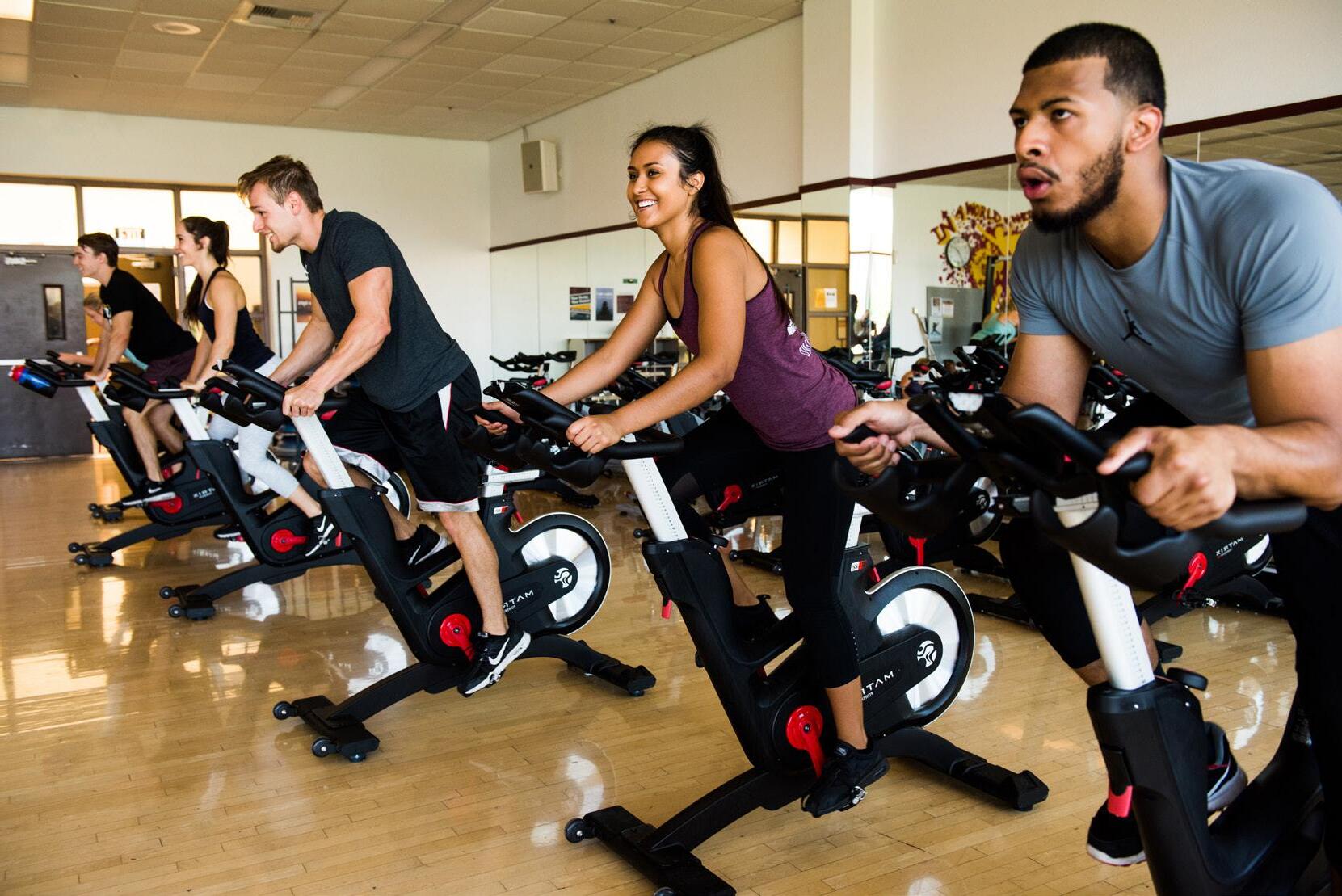
Dining Venues
Sun Devil Hospitality offers quality, value, variety and convenience with over 70 dining locations including dining halls, fast casual restaurants, cafes and on-campus markets. For more information, please visit: sundevildining.asu.edu


32
Weather in Tempe
Average high Average low Month
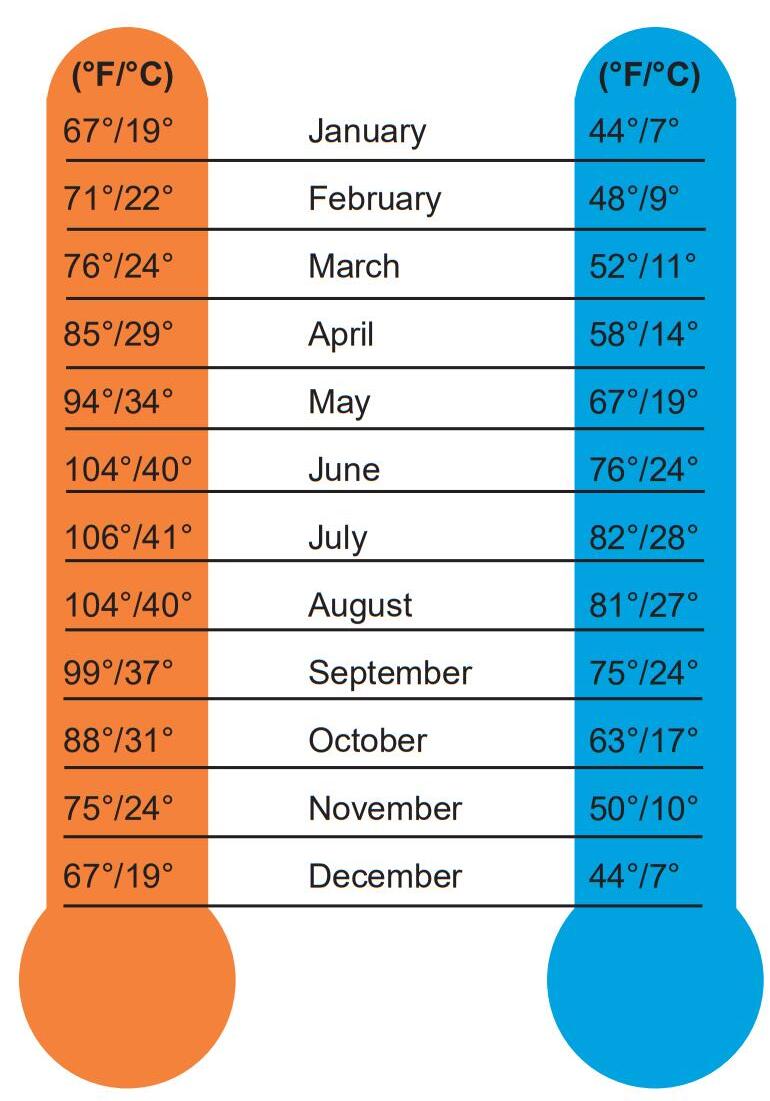
Fall
While autumn begins across most of the country in September, sunny summer days linger in Phoenix. Come October, the days are warm, pleasant and perfect for outdoor fun while cool nights lend themselves to dining al fresco. We recommend wearing: long pants or jeans, long-sleeve or shortsleeve shirts, light sweaters.
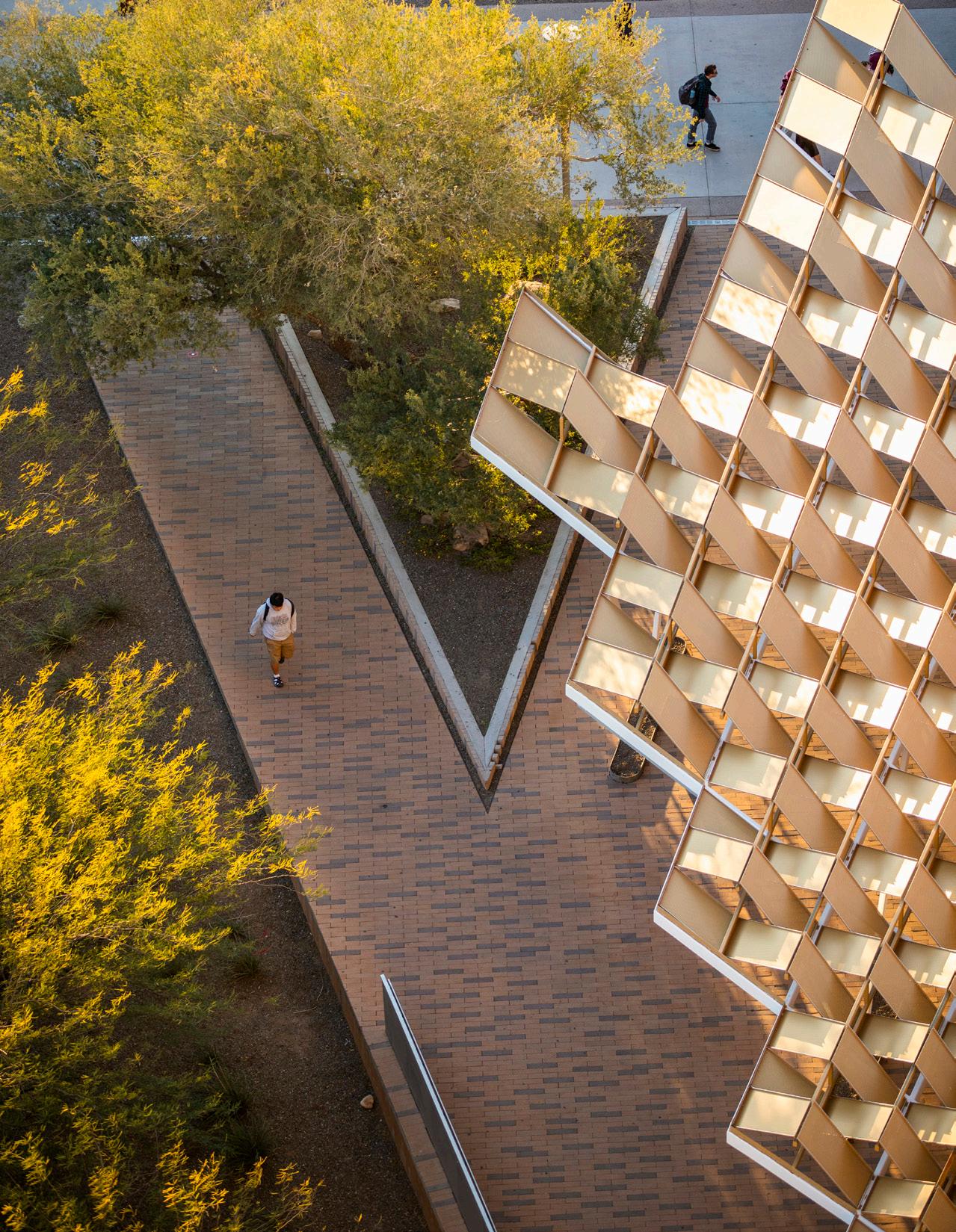
Winter
Phoenix skies stay blue throughout winter with high temperatures in the 60s and 70s. Desert nights and mornings can get chilly, but the temperature rarely drops below freezing. We recommend wearing: long pants or jeans, long-sleeve shirts, jackets/coats/sweatshirts, gloves, scarves.
Spring
Phoenix’s springtime weather is consistently perfect with blooming cacti and wildflowers brightening our desert. Daytime temperatures lull around 80 degrees while evenings are comfortably cool. We recommend wearing: long pants or jeans, long-sleeve or short-sleeve shirts, light sweaters.
Summer
Hey, it’s hot. The old axiom is that “it’s a dry heat” and there’s truth to that. The Sonoran Desert’s super-low humidity means 90-degree temperatures (32 degrees C) feel quite nice and the arid climate causes perspiration to evaporate quickly, keeping you cooler and drier. We recommend wearing: shorts, skirts, short-sleeve shirts or tank tops, flip flops or sandals, sunglasses.
33
Tourism
There is so much to see and do in Arizona. For more information on tourism in Arizona visit visitarizona.com or stop by our office to pick up an Arizona travel guide and state map.
Here are just a few of our favorite places around the state of Arizona

Jerome
Jerome is home to what was once the largest copper mine in Arizona. This historic town it located in northern Arizona.
Red Rock State Park
Red Rock State park is right outside Sedona. This park is home to beautiful red rock buttes that suround Sedona.
Grand Canyon National Park
A grand park that is almost 2,000 miles and includes a gift shop, hiking trails, skywalk, and much more.
Arizona Snowbowl
Contrary to popular belief, you can find some snow in parts of Arizona. Snowbowl is a mountainside snow sports resort.
If you want to stay a little closer to campus, the city of Tempe has so much to offer. For more information please visit tempetourism.com. Here are some of our favorite things to do in the Phoenix Metropolitan area.
ASU Art Museum
This is a free art museum located right on the Tempe campus.
MIM
The Musical Instrument Museum is the largest instrument museum in the world.
Tempe Town Lake
Tempe Town Lake is a 2-mile long lake running through the heart of downtown Tempe.

34
Events
J-1 Scholar events
The ISSC holds an event for J-1 Scholars every semester. Information about the event and registering will be emailed to your ASU email. We have a Fall Halloween event in late October and a spring carnival in March. These events are a great opportunity to meet with other scholars and talk with the ISSC staff.
Coffee and Conversation
Stop by our weekly Coffee and Conversation event. Every week we host a space to talk about helpful topics led by fellow international students and global peer mentors alongside an ISSC staff member. These events are anopen space to meet people, learn more about living in the U.S. as a scholar at ASU and gain helpful information on a variety of topics that have been picked out by previous international students and scholars studying and working at ASU. Each week will have a set topic, however, you are always welcome to bring questions, concerns, or topics they would like to engage with.
Example topics: cultural change and culture shock; mental health; U.S. dating culture; and where to visit in Arizona and the U.S. and best ways to get there.
ISSC events
The ISSC has so much more! Although the other events are geared towards international students. You are welcome to attend any of the events. To see all the different programs we have please visit: issc.asu.edu/f-1j-1-students/programs. To see a full list of all our events please visit issc.asu.edu/events.
ASU events
ASU hosts hundreds of events each year: an abundance of theater, music, art, sports and literary offerings to appeal to any audience. For a list of all events visit asuevents.asu.edu.


35
Connecting global leaders, creating lasting impact.
Connecting global leaders, creating lasting impact.
Exchange Visitor Program Welcome Brochure
Exchange Visitor Program Welcome Brochure
Welcome to the U.S. Department of State’s Exchange Visitor Program, BridgeUSA.
Welcome to the U.S. Department of State’s Exchange Visitor Program, BridgeUSA.
During your exchange program, you will have the unique opportunity to experience life in the United States. You will not only serve as an ambassador of your home country helping to educate the American people about your country and customs, but you will experience American culture first-hand. You will also enhance your skills and expertise and make connections and memories that will last a lifetime.
During your exchange program, you will have the unique opportunity to experience life in the United States. You will not only serve as an ambassador of your home country helping to educate the American people about your country and customs, but you will experience American culture first-hand. You will also enhance your skills and expertise and make connections and memories that will last a lifetime.
This brochure will help you understand the purpose of the Exchange Visitor Program, provide you with information on contacting the U.S. Department of State, and introduce you to some of the major requirements of the Exchange Visitor Program regulations.
This brochure will help you understand the purpose of the Exchange Visitor Program, provide you with information on contacting the U.S. Department of State, and introduce you to some of the major requirements of the Exchange Visitor Program regulations.
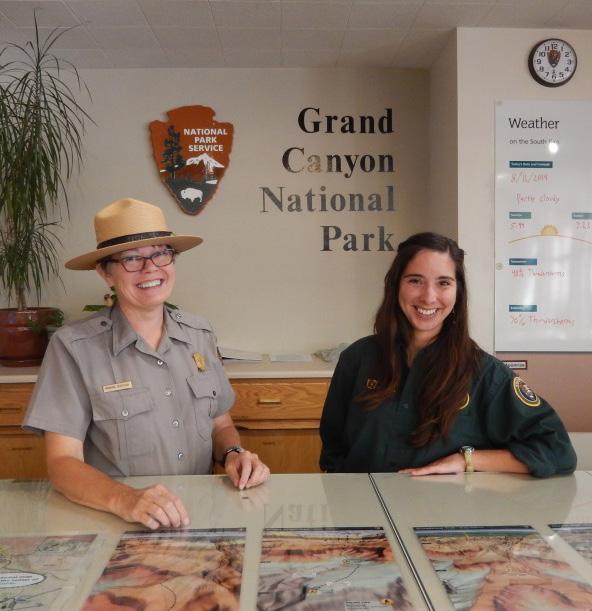



36
The Mutual Educational and Cultural Exchange Act of 1961 promotes mutual understanding between the people of the United States and other countries by means of educational and cultural exchange.
The Exchange Visitor Program
The U.S. Department of State administers the Exchange Visitor Program under the provisions of the Mutual Educational and Cultural Exchange Act of 1961, as amended. The Act promotes mutual understanding between the people of the United States and other countries by means of educational and cultural exchange. The Exchange Visitor Program provides foreign nationals opportunities to participate in exchange programs in the United States with the expectation that on completion of their exchange program, they will return home to share their experiences.
Visitor Program provides foreign nationals opportunities to participate in exchange programs in the United States with the expectation that on completion of their exchange program, they will return home to share their experiences.
Visitor Program provides foreign nationals opportunities to participate in exchange programs in the United States with the expectation that on completion of their exchange program, they will return home to share their experiences.
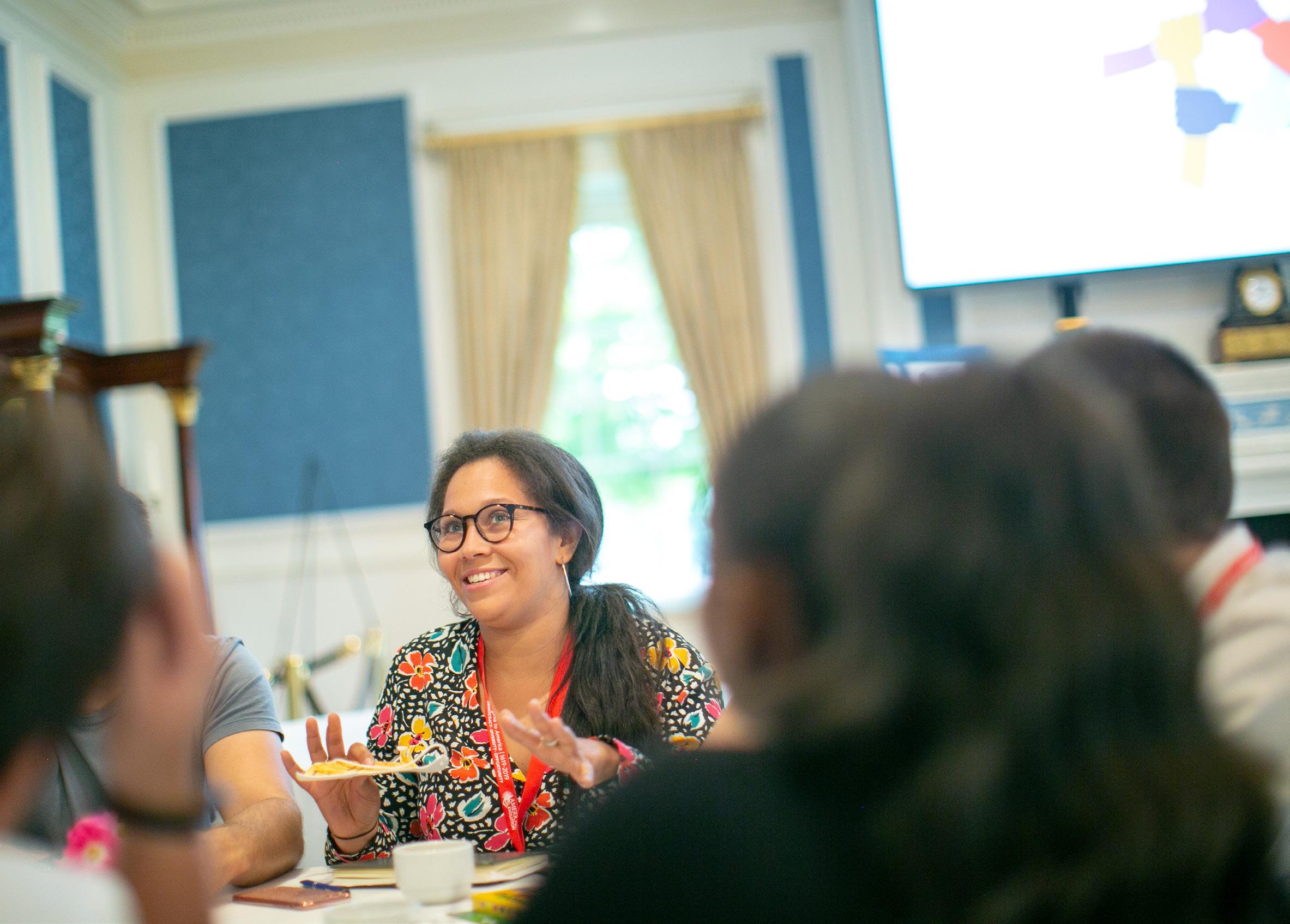



means of educational and cultural exchange. The Exchange Visitor Program provides foreign nationals opportunities to participate in exchange programs in the United States with the expectation that on completion of their exchange program, they will return home to share their experiences.
Sponsors
Sponsors
Sponsors
Sponsors
The U.S. Department of State designates U.S. organizations such as government agencies, academic institutions, educational and cultural organizations, and corporations to administer exchange visitor programs. These organizations are known as sponsors. Sponsors screen and select exchange visitors to participate in their programs based on the regulations governing the exchange activity and stated in 22 CFR Part 62. Sponsors provide exchange visitors with pre-arrival information and an orientation in addition to monitoring activities throughout their exchange program. Sponsors offer or identify cross-cultural activities that will expose exchange visitors to American society, culture, and institutions. You are encouraged to participate in activities that provide you with an opportunity to share your language, culture, and history of your country with Americans.
The U.S. Department of State designates U.S. organizations such as government agencies, academic institutions, educational and cultural organizations, and corporations to administer exchange visitor programs. These organizations are known as sponsors. Sponsors screen and select exchange visitors to participate in their programs based on the regulations governing the exchange activity and stated in 22 CFR Part 62. Sponsors provide exchange visitors with pre-arrival information and an orientation in addition to monitoring activities throughout their exchange program. Sponsors offer or identify cross-cultural activities that will expose exchange visitors to American society, culture, and institutions. You are encouraged to participate in activities that provide you with an opportunity to share your language, culture, and history of your country with Americans.
The U.S. Department of State designates U.S. organizations such as government agencies, academic institutions, educational and cultural organizations, and corporations to administer exchange visitor programs. These organizations are known as sponsors. Sponsors screen and select exchange visitors to participate in their programs based on the regulations governing the exchange activity and stated in 22 CFR Part 62. Sponsors provide exchange visitors with pre-arrival information and an orientation in addition to monitoring activities throughout their exchange program. Sponsors offer or identify cross-cultural activities that will expose exchange visitors to American society, culture, and institutions. You are encouraged to participate in activities that provide you with an opportunity to share your language, culture, and history of your country with Americans.
The U.S. Department of State designates U.S. organizations such as government agencies, academic institutions, educational and cultural organizations, and corporations to administer exchange visitor programs. These organizations are known as sponsors. Sponsors screen and select exchange visitors to participate in their programs based on the regulations governing the exchange activity and stated in 22 CFR Part 62. Sponsors provide exchange visitors with pre-arrival information and an orientation in addition to monitoring activities throughout their exchange program. Sponsors offer or identify cross-cultural activities that will expose exchange visitors to American society, culture, and institutions. You are encouraged to participate in activities that provide you with an opportunity to share your language, culture, and history of your country with Americans.
37
Responsible Officers
Sponsors appoint individuals as responsible officers and alternate responsible officers to advise and assist exchange visitors. These officers issue the Certificate of Eligibility (Form DS-2019) and conduct official communications with the Department of State and the Department of Homeland Security (DHS) on your behalf. Your sponsor’s role is to help you manage your program. If problems arise or you have questions, your sponsor is there to help you. Should you have any questions about the regulations or any aspect of your exchange program, your initial and primary contact is your sponsor. Unless provided specific contact information by your sponsor, you should contact the person whose name and telephone number is located on your Form DS-2019.
Exchange Visitor
An exchange visitor is a foreign national selected by a sponsor to participate in an exchange visitor program and who is seeking to enter or has entered the United States temporarily on a J-1 visa.
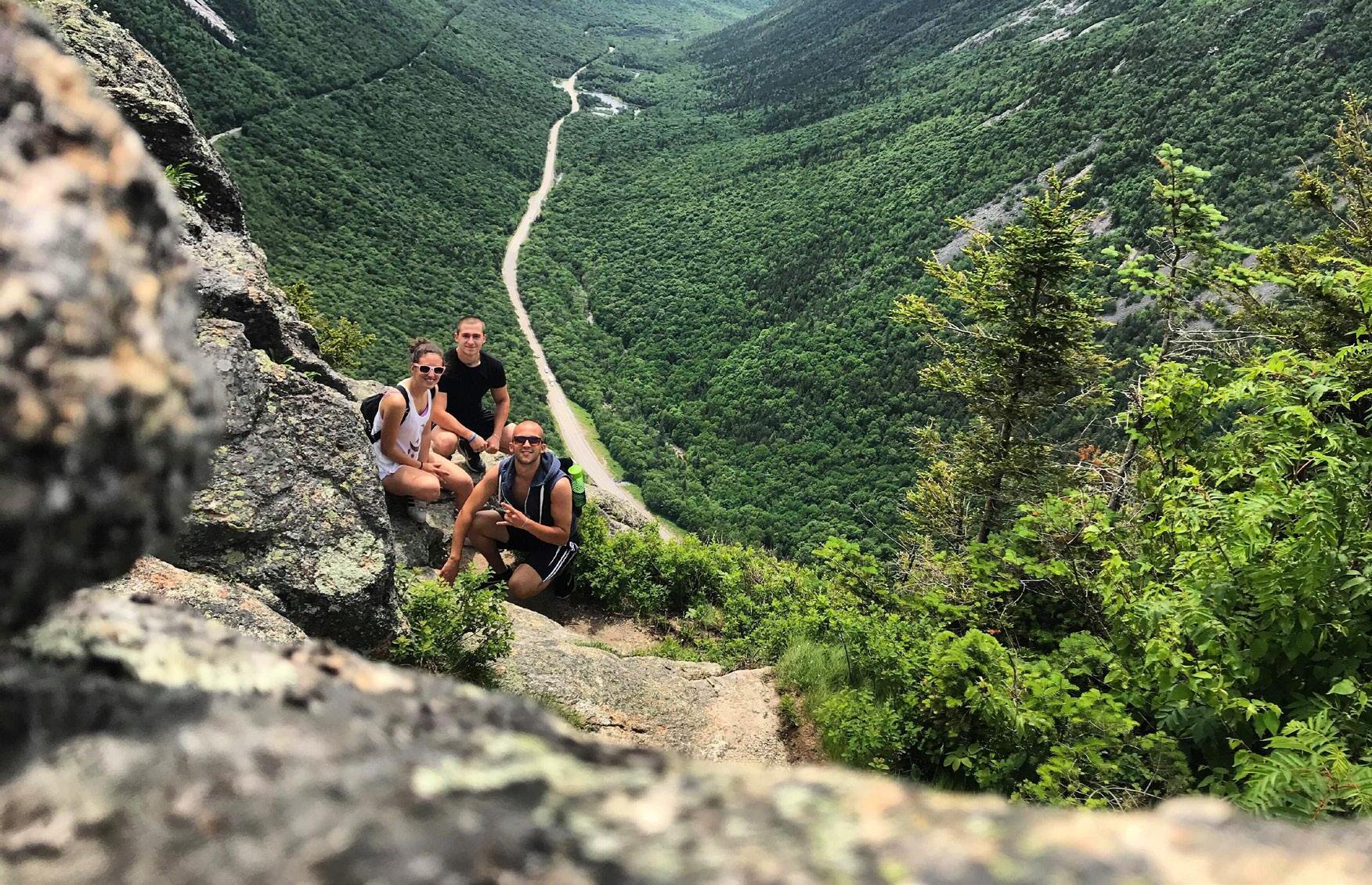
Spouse and Dependents
Some categories of the Exchange Visitor Program permit a spouse and/or unmarried children, under 21 years of age, to accompany an exchange visitor to the United States. These individuals may apply for J-2 visas with the permission of your sponsor.
Current Regulations
The Exchange Visitor Program regulations are located in the Code of Federal Regulations, (22 CFR, Part 62) and can be found at:
j1visa.state.gov/sponsors/current/ regulations-compliance/
It is important that you understand and abide by the Exchange Visitor Program regulations, U.S. laws, and sponsor rules. Regular contact with your sponsor will help you keep current with any change which may affect your J-1 visa status. Some requirements of the Federal regulations and where to find them are indicated below.
• Register with your sponsor – Your Form DS-2019 was created in a computerized system known as the Student and Exchange Visitor Information System (SEVIS). This System is administered by the Department of Homeland Security and is used to collect and maintain information on the current status of non-immigrants and their dependents in the sponsor’s program during their stay in the United States.
When you arrive in the United States, you must contact your sponsor to ensure that your data in SEVIS is accurate and updated. Failing to maintain your program status could result in serious consequences and may affect your ability to remain in or return to the United States.
• Activities and Program Provisions – You entered the United States in a specific program category and are required to engage in the activity listed on your Form DS-2019. You must comply with the specific program provisions of the regulations relating to your exchange category.
• Insurance – You are required to have medical insurance in effect for yourself (J-1), your spouse, and any dependents (J-2) for the duration of your program. Some sponsors provide the required insurance for their exchange visitors. Other sponsors may allow you to make your own arrangements or may help to identify insurance providers. Consult with your responsible officer’s sponsor before the start of your program.
38
Maintenance of Insurance
Willful failure on your part to maintain the required insurance throughout your stay in the United States will result in the termination of your exchange program.
Maintenance of Valid Program Status
You are required to have a valid and unexpired Form DS-2019. Sponsors may terminate an exchange visitor’s program for violating U.S. laws, Exchange Visitor Program regulations, or the sponsor’s rules governing their particular program. If your program is terminated, you are expected to immediately depart the U.S.
Required Notifications to Sponsors
You must immediately inform your sponsor if you change your address (residence), telephone number, email address, or complete or withdraw from your exchange visitor program early. Doing so assists your sponsor in complying with their notification and reporting requirements to the U.S. Department of State and the Department of Homeland Security. Failure to keep your sponsor informed could result in the termination of your program.
Contacting the U.S. Department of State
The Exchange Visitor Program is administered under the oversight of the Deputy Assistant Secretary for Private Sector Exchange, Bureau of Educational and Cultural Affairs.
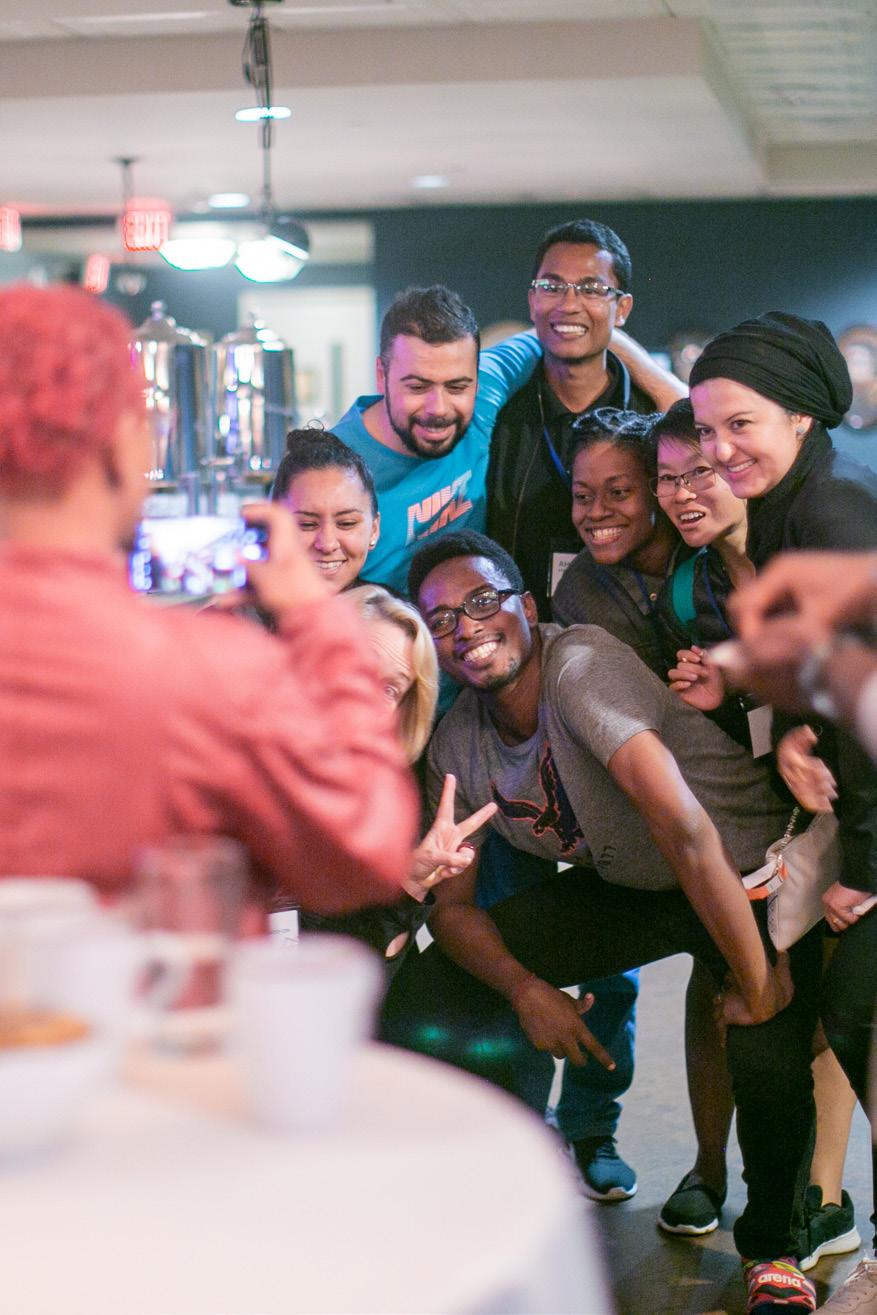
Helpful Links:
Questions or concerns about your exchange program?
Contact the sponsor listed on your Form DS-2019.
Still have questions AFTER speaking with your sponsor?
Email Jvisas@state.gov
Remaining concerns or need emergency assistance?
Call the J-1 Visa Emergency Hotline at 1-866-283-9090
The U.S. Department of State does not tolerate any form of retaliation and fully supports your request for assistance.
If you or someone else is in immediate danger, call 911!
For questions on applying please visit:
j1visa.state.gov/participants j1visa.state.gov/wp-content/ uploads/2022/01/EVTRIFOLD.pdf
Resources and Common
Questions for Exchange Visitors: j1visa.state.gov/participants/ current j1visa.state.gov/participants/ common-questions/
39
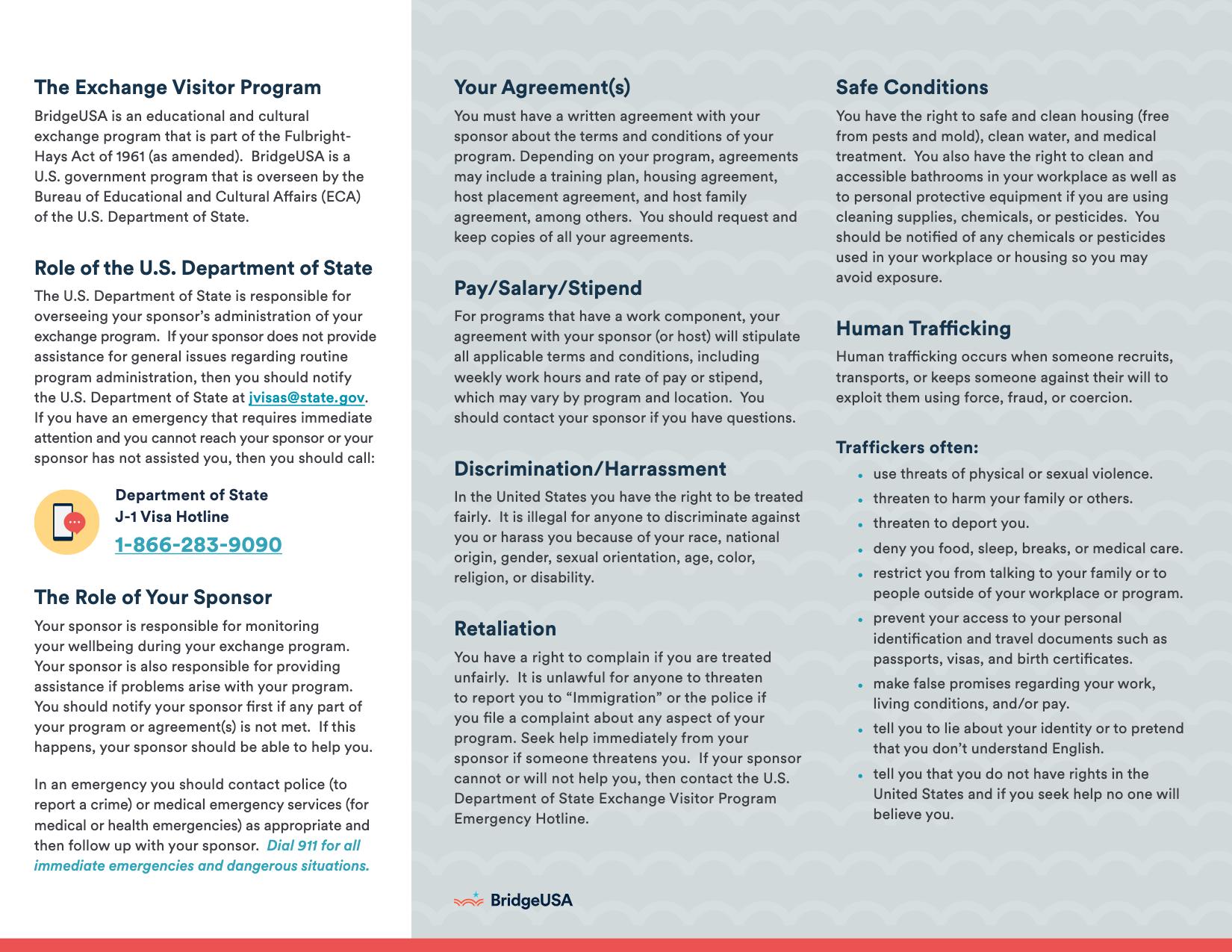



40
ASU building information and ISSC location
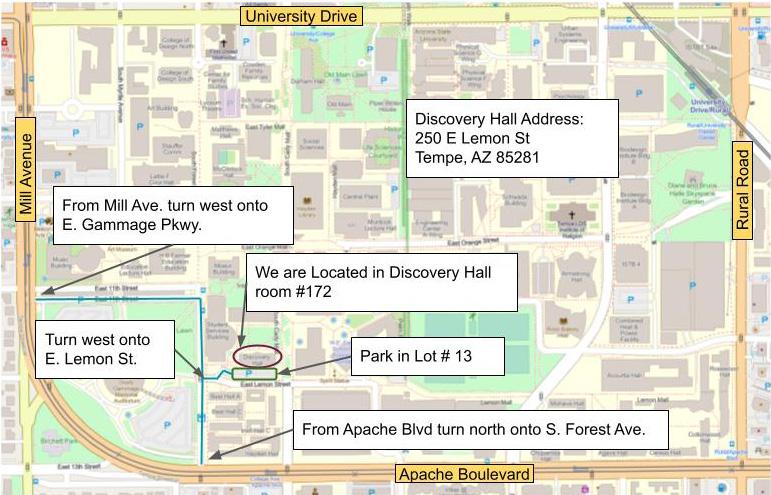
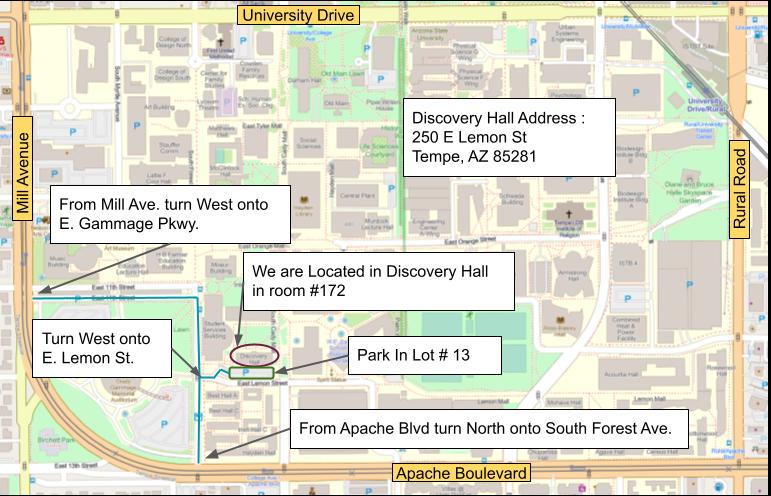
If you need help finding our office or an ASU location this site, asu.edu/about/locations-maps, has information on all ASU locations and an interactive digital map of all buildings and locations with a directory. You can also pick up a physical map of the four main campuses in our office.
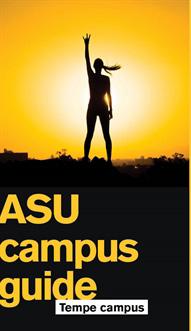
41
Inspiring Global Citizens








 Assistant Vice President,
Center
Assistant Vice President,
Center























































